#Black magic expert in Europe
Explore tagged Tumblr posts
Text
@tnott said “So the expert on all of this is… you?” (for Sirius from Theo)
"Yep." Sirius spread his arms out in mock celebration. "Welcome to the Headquarters of Magical Objects, and the answers to all the burning questions of your heart's content, granted that it's stored in that filing cabinet there, and relates to something no one in all the ministry actually gives a damn about." He gestured to a nearby cabinet so dusty, it was clear no one had cared to open it in years.
Two decades ago, Sirius would have considered himself the goddamn expert of the whole fucking universe. Yes, he'd been a cocky prick, but he'd had good reason for it--he'd been good, damn good. He and James hadn't just been popular in the social scene alone; they'd been top of their class. Sirius had gotten top grades in all of his OWLs and NEWTS without trying, and he'd managed to become an animagus when he was only fifteen years old, when many grown wizards couldn't pull it off. So yes, once upon a time, Sirius Orion Black had been full of promise, a rising star in the wizarding world.
And then came the war. And prison. And another god damned war. He was twenty-two when he was locked up, thirty-four before he'd managed to escape, and thirty-eight by the time the war was over and his name cleared. By that age, most people had at least some idea what they'd been put on this earth to do, but Sirius had spent the last year or so shuffling around from one job to the next in the Ministry. They had all been easy enough to get; the Ministry owed him a debt, after all. Twelve years of false imprisonment, it turned out, was worth a job or two, so Sirius tried them all, quitting after only a few short weeks.
And that was how he'd come to work in the Misuse of Muggle Artifacts Department. It had been a good enough excuse to get paid for taking apart the things he already cared about: like his motorcycle, or Arthur's car. He'd long been interested in muggle technology--in muggle anything, really, that might have pissed off his parents. Now, however, they had him digging up old muggle artifacts that had been cursed and placed in museums across the country: old devices from the Roman era and Medieval Europe. Some of it had been cursed long ago with anti-theft charms and the like, but some had some pretty nasty curses, the sort of thing his parents might have concocted, and the sort of thing he'd unearthed in his family home, Number 12 Grimmauld Place, a hundred times over.
So maybe, in a manner of speaking, he was an expert. He slumped back into his office chair--he was still surprised he had an office in the first place--and threw his boots up onto the desk, crossing his arms behind his head. "What can I do you for?"
7 notes
·
View notes
Text
Hogwarts Legacy OC: Hufflepuff

“Ahaa… a mind full of secrets and shame. And a need to atone. You will find your home among those who will accept you as you are. Better be… HUFFLEPUFF!!!”

Morgan Deverill (He/Him)

Morgan Deverill comes from a line of power hungry witches and wizards, many of whom have lost their lives in the pursuit of power. He grew up on the stories of his late ancestor Barnabas, who had acquired the Elder Wand, wreaking havoc across Europe before meeting an untimely demise at the hands of another wizard.
After an unfortunate accident that leaves Morgan as the last remaining member of his family, Morgan takes it upon himself to not only mend his family name, but to atone for his perceived wrongdoings.

Appearence:
Face:
Morgan has a long, oval-shaped face. His nose and cheeks are dusted with freckles and a singular mole.
His features are soft, save for three well-faded scars running across his left eye.
Eyes:
His eyes are a piercing yellow. His stare would be hawklike if he ever held his gaze for longer than a few seconds.
Hair:
Morgan’s hair is black and wavy. It is medium length and left to flow back and away from his face.
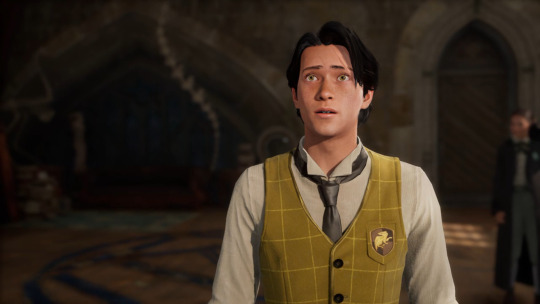

Personality:
Morgan suffers from a severe case of survivors guilt over the loss of his family.
Sees the pursuit of power as the reason behind of his family’s tarnished reputation, and strives to be better because of it.
Cinnamon roll energy
He is extremely cautious and precise in the use of his magic (especially the Ancient Magic), making him an expert in charms work.
Not so much in the area of Defense Against The Dark Arts however.
The first to dive in front of a rogue curse and the first to curse himself for not moving faster.
Will follow his friends to the ends if the earth and beyond.

Wand:
Wood:
I had some trouble deciding between Elder and Willow. Elder for its connection to Morgan’s family history and Willow to represent his own internal conflicts. However, I think Willow would best suit him in the end, as his personality does not lend itself to remaining the master of an Elder wand for long.
Additionally, Willow’s natural inclination towards healing magic lends itself well to Morgan’s need to help others.
Core:
Unicorn Hair for 2 reasons.
Firstly, his need to give aid to those in need and loyalty both lend themselves strongly to Unicorn.
Secondly—as a core— Unicorn hair is the opposite of Thestral Hair in temperament and overall personality. As such, Morgan’s need to separate himself from his family history with the Elder Wand makes Unicorn Hair a perfect core choice for him.
Length/Flexibility:
Morgan would find a wand under 12 inches to be exactly what he requires.
He does not prefer dramatic flourishes of his wand, instead favoring deft and precise wand movements. Which are much easier with a slightly shorter wand.
On the side of flexibility, his steadfast convictions and unshakable loyalties manifest strongly in his wand’s flexibility, which is rather rigid.
Dividers by @firefly-graphics and @sligheach-sidhe

#ask me questions#hogwarts legacy#hogwarts legacy oc#hogwarts legacy mc#hogwarts legacy hc#hogwarts legacy headcanons#oc character sheet
11 notes
·
View notes
Text
Embark on a Journey to the Last Shangri-La: Bhutan Tours with Langur Eco Travels
bird watching, eco travels, eco -friendly tourism, nature tourism places, birding tour
Bhutan, the "Land of the Thunder Dragon," nestled high in the Eastern Himalayas, beckons travelers with its mystical allure, pristine landscapes, and rich cultural heritage. A Bhutan tour with Langur Eco Travels is more than just a vacation; it's an immersive experience into a unique and captivating world.
Why Choose Langur Eco Travels for Your Bhutan Adventure?
We believe in responsible and sustainable travel that respects the environment and the local communities. Our eco travels in Bhutan prioritize minimizing our impact while maximizing your enjoyment.
Expert Local Guides: Our experienced and knowledgeable guides will provide insightful commentary on the history, culture, and natural wonders of Bhutan.
Customized Itineraries: We understand that every traveler is unique. We tailor each Bhutan tour package to your specific interests, whether you're a passionate birdwatcher, a culture enthusiast, an adventure seeker, or simply looking for a relaxing retreat.
Focus on Sustainability: We prioritize eco-friendly practices, supporting local communities and minimizing our environmental footprint.
Unforgettable Experiences Await:
Bird Watching in Bhutan: Bhutan is a birder's paradise! Join our bird watching tours in Bhutan led by experienced ornithologists. Discover the diverse avian life, including the elusive Blood Pheasant, the majestic Black-necked Crane, and many other fascinating species.
Bird Photography in Bhutan: Capture stunning photographs of the magnificent birds of Bhutan in their natural habitats. Our bird photography tours provide ample opportunities to capture unforgettable images.
Wildlife Encounters: Embark on exciting wildlife safaris to spot elusive snow leopards, majestic red pandas, and playful monkeys in their natural habitats.
Cultural Immersion:
Experience the vibrant festivals and celebrations that showcase the unique Bhutanese way of life.
Visit ancient monasteries and temples, such as the iconic Tiger's Nest Monastery and the majestic Punakha Dzong.
Learn about the country's unique philosophy of Gross National Happiness and its emphasis on environmental conservation and cultural preservation.
Adventure Activities:
Hike through lush valleys and trek to remote villages.
Experience the thrill of white-water rafting on the gushing rivers of Bhutan.
Go mountain biking through scenic trails and enjoy the breathtaking views.
Bhutan Tours for Every Traveler:
Bhutan Tour for United States (USA) Peoples: We understand the unique travel preferences of our American guests and offer customized itineraries that cater to their interests and expectations.
Bhutan Tour for United Kingdom (UK) Peoples: For our UK travelers, we design enriching experiences that combine cultural exploration with adventure, providing a memorable journey through the Himalayas.
Bhutan Tour for Australia (USA) Peoples: We cater to the adventurous spirit of our Australian travelers with exciting treks, thrilling white-water rafting adventures, and unique wildlife encounters.
Bhutan Tour for Europe Peoples: For our European guests, we curate itineraries that showcase the unique beauty and cultural richness of Bhutan, offering a truly unforgettable travel experience.
Bhutan Tour for France Peoples: We welcome our French travelers with a warm "Kuzuzangpo" and offer customized itineraries that combine cultural immersion with a touch of French flair.
Book Your Bhutan Adventure Today:
Ready to embark on a journey to the "Land of the Thunder Dragon"? Contact Langur Eco Travels today to start planning your dream Bhutan tour. Our expert team will work closely with you to create a personalized itinerary that perfectly matches your travel style and interests.
Experience the magic of Bhutan with Langur Eco Travels – a journey that will stay with you forever.
See more
bird watching, eco travels, eco -friendly tourism, nature tourism places, birding tour
cultural tours, eco travels, thunder dragon, adventurous, spiritual
birds of Bhutan, eco travels, bird photography, wildlife tours, Buddhism tour
0 notes
Text
Why Choose a Travel Agency in Germany for Your Next Adventure?
Germany isn’t just a country of bratwurst and beer—it’s a central hub that connects you to Europe’s most captivating destinations. From the stunning Alps to fairytale castles, Germany is brimming with wonders waiting to be explored.
But navigating this diversity can be challenging. That’s where a travel agency in Germany steps in. With deep local knowledge and international connections, they create itineraries that capture the essence of Germany while providing seamless access to neighboring European countries.
By choosing a travel agency based in Germany, you also gain insider tips on hidden gems, seasonal events, and efficient transportation routes. It’s like having a local friend who knows all the secrets!
Tailored Travel: More Than Just a Ticket
Modern travel agencies in Germany offer more than just flights and hotels. They specialize in curating experiences that match your interests, whether you’re a history buff, foodie, or adventure seeker.
Imagine walking through the medieval streets of Rothenburg ob der Tauber or experiencing the electric energy of Berlin’s nightlife. A good travel agency can tailor these experiences to ensure every moment feels personal and meaningful.
And it’s not just about destinations—these agencies take care of every detail, from securing skip-the-line museum tickets to arranging guided tours of historical landmarks. They focus on turning your trip into a narrative you’ll want to relive over and over.
Stress-Free Travels: Leave the Planning to Experts
Let’s face it: travel planning can be overwhelming. From deciphering train schedules to understanding local customs, organizing a trip can sometimes feel like more work than fun. That’s where a travel agency in Germany saves the day.
By handling the logistics for you, they allow you to focus on the joy of exploration. Want to combine a trip to Oktoberfest in Munich with a serene Rhine river cruise? They’ll make it happen without a hitch.
Moreover, German efficiency isn’t just a stereotype—it’s a way of life. When you book through a travel agency in Germany, you can count on punctuality, reliability, and a level of service that leaves nothing to chance.
Discovering Hidden Gems: Beyond Tourist Hotspots
While Germany’s big cities like Berlin, Munich, and Frankfurt attract millions of tourists annually, the true magic often lies in its lesser-known spots. A travel agency in Germany can guide you to off-the-beaten-path destinations like the serene lakes of Bavaria or the picturesque Black Forest villages.
These agencies have a knack for unearthing unique experiences, such as wine-tasting tours in the Mosel Valley or hiking adventures in Saxon Switzerland. By trusting their expertise, you’ll see Germany through a lens most tourists miss.
Exploring these hidden treasures doesn’t just enhance your trip; it creates stories that you’ll cherish for a lifetime.
Sustainable Travel: Explore Responsibly
In recent years, travel agencies in Germany have embraced sustainability, offering eco-friendly travel options. From promoting train travel to supporting local businesses, they help you minimize your environmental footprint while enjoying unforgettable experiences.
Whether it’s booking stays in eco-certified hotels or organizing cycling tours in scenic regions, these agencies make sustainable travel seamless and enjoyable. By choosing them, you’re not only making memories but also contributing to preserving the beauty of Germany and Europe for future generations.
Ready to Explore?
Choosing a travel agency in Germany means more than booking a trip—it’s about crafting an unforgettable journey that speaks to your soul. From meticulous planning to discovering hidden gems, these agencies redefine what travel should be: stress-free, personal, and full of wonder.
0 notes
Text
Explore Europe with Our Exciting Tour Packages from Mumbai

Organizing a fantastic trip to Europe? There’s nowhere else to look! With our carefully chosen Europe tour packages, you may go to some of the most famous locations on the continent from Mumbai. Whether you are enthralled with the magnificent scenery of Switzerland, the charming streets of Paris, or the historical sites of Rome, our tour packages promise an amazing time.
Discover the Magic of Europe
Europe is a continent rich in culture, history, and natural beauty. From the sunny beaches of Spain to the snowy peaks of the Alps, Europe offers a diverse range of experiences for every type of traveler. Our Europe tour packages from Mumbai cover all major destinations, including:
France: Visit the Eiffel Tower, explore the Louvre Museum, and stroll through the charming streets of Paris.
Italy: Discover the ancient ruins of Rome, the art and architecture of Florence, and the romantic canals of Venice.
Spain: Experience the vibrant culture of Barcelona, the historic sites of Madrid, and the beautiful beaches of the Costa del Sol.
Germany: Explore the medieval castles of Bavaria, the bustling cities of Berlin and Munich, and the scenic Black Forest.
Switzerland: Enjoy the stunning landscapes of the Swiss Alps, the charming towns of Lucerne and Interlaken, and the cosmopolitan city of Zurich.
Netherlands: Take a boat tour through the canals of Amsterdam, visit the famous Keukenhof Gardens, and explore the historic windmills.
Greece: Wander through the ancient ruins of Athens, relax on the beautiful islands of Santorini and Mykonos, and enjoy the rich history and culture.
United Kingdom: Explore the historic landmarks of London, the scenic beauty of Scotland, and the charming countryside of England.
With possibilities to personalize your schedule according to your tastes, our Europe tour packages from Mumbai are created to give you the best of Europe.
Why Choose Us?
Expert Planning: Our travel experts meticulously plan every detail of your trip, ensuring a seamless and stress-free experience.
Local Guides: Experience Europe like a local with our knowledgeable guides who bring each destination to life with their insights and stories.
Comfort and Convenience: Enjoy comfortable accommodations, convenient transportation, and a well-planned itinerary that covers all major attractions.
Contact Us Today
Are you prepared to set out on the journey of a lifetime? Get in touch with us to reserve your Mumbai to Europe travel package right now! We can help you with all of your travel needs thanks to our branches in major cities:
Mumbai: +919645464800
Bangalore: +919645465220
Chennai: +919645461744
Our helpful staff is available to assist you in organizing the ideal trip to Europe. We offer a plan that will work for you whether you’re traveling alone, with friends, or family. Allow us to handle all the details so you can concentrate on creating lifelong memories.
Don’t pass up the opportunity to see the finest parts of Europe. When you reserve your Europe tour package from Mumbai, you can look forward to an amazing voyage to some of the most captivating locations on the continent.
0 notes
Text
An Abbreviated and Simplified History of Medicine and the Physician Role
30 000 BCE: Cave paintings from almost 30,000 years ago show scenes of medicine people and community members participating in healing ceremonies and exchanging medicinal plants.
Let us remember that mental and physical affliction was always related to sacred beliefs and caused by the power of divinities. At the time, medicine people used magic and herbal potions to cure demons' spells.
3000-2000 BCE: The Sumerians, considered the first organized widespread civilization, reported detailed surgical procedures, medicinal plant prescriptions, and exorcism on clay tablets from 3000 to 2000 BCE.
Of importance, history reveals that women were surgeons and doctoresse since 3500 BCE, especially in Egypt, Italy, and Greece. During the antiquity and the development of the Greek civilization, we see the emergence of the rational and scientific method to push back against the supernatural. Many Greek thinkers were inspired by the ancient Egyptian civilization, who left behind knowledge about many healing agents.
1500 BCE: Ancient Indian Medicine was centered around Ayurvedic practices, based on a sacred Hinduist text, The Atharvaveda. Traditional Chinese Medicine is based on acupuncture, herbal mixtures, and other therapies practiced for thousands of years. However, the golden age of medicine started with the Zhou dynasty and was shaped by Taoist healing practices. Note that women were well-respected priests and healers at the time.
1100-146 BCE: The Ancient Greeks had a holistic approach to medicine and thought that environmental issues, trauma, and beliefs played a role in ailments, encompassed in the humoral theory. As the practice of trial and error took root, beliefs about divine punishment and grace were replaced by scientific theories based on biological cause and effect.
Doctors at the time actively preached that imbalances between the four humors: blood, phlegm, yellow bile, and black bile were responsible for illnesses. SES was also a concern as poor people were more afflicted by deplorable living conditions, giving rise to injuries, sanitary-related diseases, and famine.
440-360 BCE: Hippocrates, considered the foundational figure of modern medicine, established the first medical school at Cos and began to document different illnesses with his apprentices. They created medical terminology and drafted the first binding document of ethics called the Hippocratic Oath.
It is still in use today and affirms that physicians must follow a set of guiding and ethical principles in caring for their patients. Other prominent Greek physicians who inspired modern medicine are Asclepius, Diocles of Carystus, and Praxagoras of Cos. Their lasting influence was felt on European and Islamic medicine until the 14th century. We should also note that Aristotle, one of the most influential philosophers from antiquity, was greatly concerned about empiricism in its ecological and natural environment and influenced the advancement of medicine at the time.
400-1453 CE: Byzantine Medicine built upon the medical knowledge of the Greco-Roman empire and compiled it into textbooks. Islamist physicians became experts in anatomy, ophthalmology, pharmacology, pharmacy, physiology, and surgery, and their contributions and rigorous record-keeping pulled Europe out of the Dark Ages.
476-1450 CE: Unfortunately, during the Middle Ages and the rise of the male-dominated clergy, women were forbidden to practice surgery and medicine, among other things. However, in small pockets of Europe, between 100 CE and 1300 CE, cities like Bologna, Paris, and Oxford opened medical schools to teach rudimentary surgery and medicinal treatments. Students from wealthy families all over Europe would pursue academia for about eight years, three years of pre-med, and five years of medical school, which is relatively similar to today's curriculum's length without counting residency. Of note, a woman physician was awarded her degree in Sicily in 1376.
1600s: In Early Modern Medicine, in the 17th century, the civilian–physician ratio was still small, with a majority of unlicensed practitioners, of which 25% were women. Two key aspects that marked the Renaissance were the uptick in dissections, which fueled the advancement of anatomy and blood circulation understanding, and the microscope. Nuns played a fundamental role in hospitals and were the precursors of nurses in Catholic countries.
1700s: During the 18th century, the Age of Enlightenment, physicians became respected academics and saw a rise in social status.
1800s: The early 19th century marks the era of Late Modern Medicine and the rise in microbiology research to understand microorganisms like bacteria. New sanitary measures, like surgeons washing their hands thoroughly, were implemented, saving countless lives. Louis Pasteur and others introduced vaccines. Nursing schools opened in the late 19th century and became an attractive career for aristocratic and bourgeois women.
Elizabeth Blackwell was the first woman to earn a medical degree in 1849, but it was still challenging for women to become physicians in the United States until the 1970s.
0 notes
Text

@amilbaba famous and authentic amil in #asia #europe #kaly ilam wali amil islamabad 03432933659 | kala jadu- expert in karachi #ladyasttrologer | expert in Dubai #amilbaba ..#black magic expert in islamabd
#kalailam in lahore
#jadu- expert in karachi
#dhaiya amal expert in faisalabad
#sifli ilam expert in jamshoro
#bangali-amal experts inpakistan
#blackmagic expert in (#dubai, #canada, #france, #uk, #usa, #germany, #turkey, #saudiaarabia,#ksa #switzerland,#southkorea,#japan,#china,#greece,#westindies,#norway and all over the world) 03432933649 contact us forany problem
#amilbaba
#tantrik amil
#bangali amilbaba
#jadutoona kat o palat
0 notes
Text
Discover Enchanting Granada: Weekend Getaway at Room Mate Leo for €81 - Reserve Your Magical Retreat Today!

Uncover the Magic of Granada: Weekend Getaway at Hotel Room Mate Leo for €81 - Reserve Your Retreat for a Memorable Experience. #GranadaGetaway #DiscoverGranada #GranadaExploration #AlhambraAdventures #GranadaVibes #TravelSpain #Wanderlust #HistoricCities Grab The Deal

Experience Granada's Splendor: Room Mate Leo, a Design Hotel with a Rooftop Terrace Offering Stunning Views of Granada and the Alhambra Palace.

Enjoy Free Wi-Fi, Stylish Air-Conditioned Rooms with Plasma-Screen Satellite TV. Immerse Yourself in Modern Elegance with Black, White, and Gold Interiors, Minibar, and Safe.

Conveniently Located on a Pedestrian Street in Granada's Prime Shopping Area, 300m from the Cathedral. Explore the Albaicin District Just a 10-Minute Walk Away.

Buses to the Alhambra and Granada Airport Stop 400m Away. Indulge in a Varied Buffet Breakfast at Room Mate Leo and Explore Nearby Bib-Rambla Square and Tapas Bars on Navas Street, Just 250m Away. Book Your Stylish Getaway Now!

Travel Resources Hotels and Hostels Booking.com is available in 43 languages and offers more than 28 million reported accommodation listings, including over 6.6 million homes, apartments, and other unique places to stay. TripAdvisor is the world’s largest travel guidance platform. With more than 1 billion reviews and opinions of nearly 8 million businesses, travelers turn to Tripadvisor to find deals on accommodations, and book experiences. Klook is a booking platform on which travelers can book hotels, cars, tours and activities, tickets to attractions, and shows at great prices. Hotellook is a service that helps you find and compare prices on hotels around the world, provided by a leading reservation system. Today, Hotellook.com offered to put together information on more than 250,000 hotels in 205 countries. Hostelworld, the global hostel-focused online booking platform, inspires passionate travelers to see the world, meet new people, and come back with extraordinary stories to tell. Hostelworld has more than 13 million reviews across over 17,000 hostels in more than 179 countries, making the brand the leading online hub for social travel. WeGoTrip is an online service for booking audio excursions and tours on 35+ countries on different languages (mostly english). Travelers can take audio excursions created by professional tour guides and local experts. Tiqets’ innovative technology ensures that travelers can book tickets on their phone at the last minute, receive their tickets directly in a digital form, and show their mobile phones in place of physical tickets to museums, places of interest, and attractions. Offers available passes in Europe and the US.

Car Rental You can find the best car rental prices at QEEQ.COM. QEEQ.COM serves road trip travellers from different countries by working with car rental companies all over the world. The company offers its customers the widest set of car rental options and always strives to offer the most competitive price Read the full article
0 notes
Text
SEO Dublin
Affordable SEO Agency Dublin: SEO Experts
Elevate your business with a leading Dublin SEO company that delivers tangible results. In today’s digital age, most people turn to Google when searching for services or products. If you’re not on the first page, you’re missing out on potential customers. This is where our expertise in search engine optimisation (SEO) comes into play.
Local SEO Dublin: Making Your Business Stand Out
With over 17 years in the industry, we ensure our clients dominate search engine results. Our Dublin SEO team, sourced from Europe’s best SEO agencies, is committed to unmatched SEO services in Ireland.
SEO Dublin: Tailored Strategies for Irish Businesses
Our SEO specialists focus on enhancing your website’s visibility on Google, guaranteeing increased traffic, better rankings, and more leads. We emphasise long-term, sustainable growth.
We find them magic keywords that will get Your Website to the top of page 1!
Keyword Research: The Backbone of SEO
Keyword research goes beyond just finding words; it’s about understanding your audience and their needs. Here’s our detailed approach:
Understanding Your Audience
We delve deep into understanding the pain points and solutions your audience seeks.
Advanced Tools
We harness industry-leading tools to identify high-value search terms, providing insights into search volume, competition, and future trends.
Competitor Analysis
We examine the keywords your competitors rank for, identifying gaps and opportunities for your business.
Focus on Long-Tail Keywords
These longer, specific keyword phrases often have a higher conversion rate, even if their search volumes are lower.
Continuous Strategy Updates
As trends evolve, we keep your keyword strategy updated, ensuring maximum visibility.
The Power of Long-Tail Keywords
Long-tail keywords are specific search terms that visitors use when they’re closer to making a purchase or when using voice search. By targeting these, businesses can reach a more specific audience in Ireland.
Affordable SEO Packages for Dublin Businesses
We offer high performance SEO Dublin packages tailored to every budget. Whether your a local Dublin business or a national brand in Ireland, we’re here every step of the way.
Ready to Elevate Your Rankings?
As a premier SEO Dublin agency, we’re poised to ensure your website’s success. Reach out to the Affordable SEO company and embark on your SEO journey.
Link Building: Boosting Your Website’s Authority
Link building is pivotal in enhancing your website’s authority. Here’s our comprehensive approach:
Quality Over Quantity
A single backlink from a reputable source can be more valuable than numerous low-quality backlinks.
Advanced Tools
We harness industry-leading tools to identify high-value search terms, providing insights into search volume, competition, and future trends.
Guest Posting
We collaborate with high-authority websites in your industry, creating content that positions you as an authority.
Local Directories
Being listed in reputable local Irish directories can provide valuable backlinks and drive local traffic.
Relationship Building
We network with industry influencers and bloggers, fostering relationships that lead to organic backlinks.
Steering Clear of Black Hat Techniques
We avoid tactics that can harm your website’s reputation, focusing only on ethical strategies.
Backlink Audits
Regular SEO audits ensure your backlink profile remains clean and beneficial.
Affordable SEO Packages Ireland
Affordable Websites SEO Packages have options for every business size and budget. We will rank your website higher locally and nationally. The SEO packages we provide cover all aspects of search engine optimisation to rank your website higher on Google. As a leading SEO Dublin Agency, we use various tools, techniques, and strategies to enhance your online presence. We create results-driven strategies that boost Google rankings and help increase conversions. Speak to the top SEO Dublin agency today if you have any questions about our packages and how to get started.
1 note
·
View note
Text
Secrets Were His Life
"SPELLBOUND THEY GATHERED, FAR AND NEAR TO SCAN, THE WEIRD POWERS OF THIS WONDROUS MAN."
youtube
William Ellsworth Robinson greeting World War I veterans at a 1915 benefit performance. This is the only film record of Chung Ling Soo that exists today.
TO SAY CHUNG LING SOO'S DEATH OVERSHADOWED HIS LIFE IS AN UNDERSTATEMENT AND ONE OF THE GREATEST TRAGEDIES IN MAGIC HISTORY.
THE STORY OF HIS DEATH IS NOTHING WHEN COMPARED TO THE STORY HIS LIFE.
Born William Ellsworth Robinson on April 2, 1861 in New York, he was known as Billy Robinson to his intimate acquaintances, as The Man of Mystery to his first audiences, then later as Achmed Ben Ali, Nana Sahib, Abdul Khan, and Hop Sing Soo before finally settling on his greatest role, Chung Ling Soo, The Marvelous Chinese Conjurer.
William Robinson was a contemporary of Herrmann, Kellar, Thurston, Maskelyne, Devant, and Houdini. He was highly esteemed in his field for his work onstage and behind the curtains. He was also one of the most secretive men who ever lived both, personally and professionally.
SECRETS WERE HIS LIFE.
His untimely demise cast a fog of mystery which enveloped and obscured the life of one of the greatest magicians who ever lived.
WHAT WERE HIS SECRETS?
What took place between the beginning of his career, when he invited his audiences to enjoy "little experiments, which endeavor to prove that seeing is believing" to the end where he played the most prestigious theaters and was billed as:
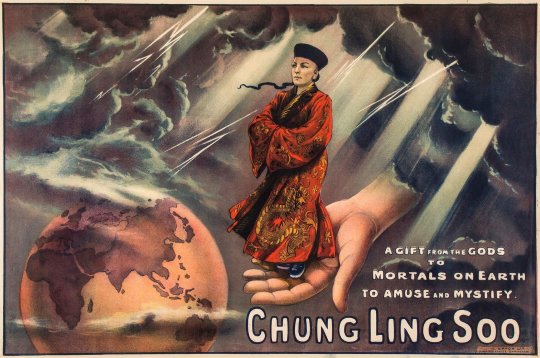
A GIFT FROM THE GODS
TO
MORTALS ON EARTH
TO AMUSE AND MYSTIFY
Growing up in New York, the young William Ellsworth Robinson was able to watch the great magicians who performed at Barnum's or the New York Coliseum. He witnessed Robert Heller on Broadway as well as Signor Blitz when they brought their world class shows to town.
Robinson's passion for studying secrets began when he first read Modern Magic by Professor Hoffmann. This was one of the most important books ever published in magic as it published the true secrets of professional magicians. The book also gave many detailed designs of conjuring apparatus assuming that every reader was a skilled metal or wood worker. Unable to afford the expensive conjuring apparatus revealed in Modern Magic, the young Billy Robinson took a job in a brass foundry and learned the art of shaping and crafting metal. Young Robinson started to make his own props and when he showed his handiwork to Francis and Anthony Martinka, they gave him a job at their world famous magic manufacturing company and shop, the Palace of Magic.
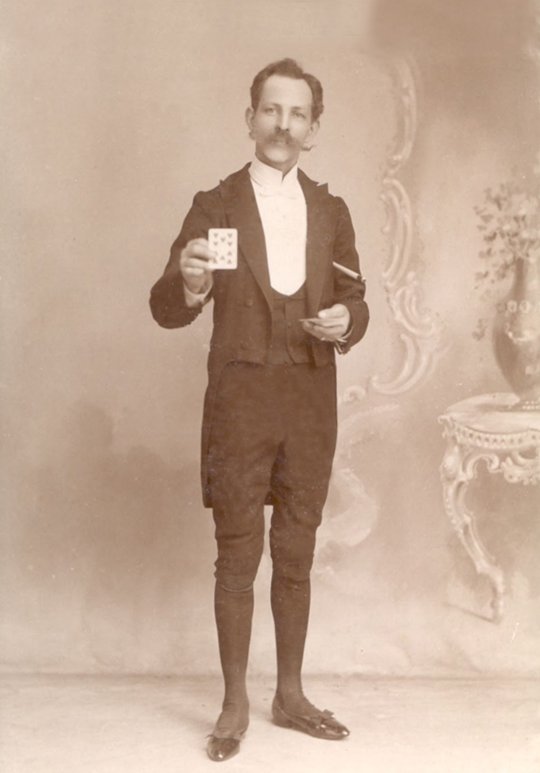
It was in Martinka's workshop that William Robinson continued his education and developed his skills for years as he built props, apparatus, and illusions for local and travelling professional magicians. By his early twenties, Billy Robinson was an expert in magic.
As he progressed in his art he began spending more and more away from Martinka and America and more time onstage in Europe, seeing increasing success with his Achmed Ben Ali act, which used very novel principles in deception that had been honed to a fine art by Robinson after seeing it in use by Auzinger. The act attracted the attention of some of the biggest names in magic including Alexander Herrmann and Harry Kellar who saw Robinson's devices and expertise as the future of magic.
Over dinner Kellar offered William Robinson a part in his show. Herrmann was planning a tour featuring his two new illusions: Black Art and Le Cocon. These two illusions were ones that Robinson had stolen from Auzinger and that both Herrmann and Kellar wanted so badly. After delaying Robinson finally accepted Kellar's offer to come perform in the show and work backstage for the sum of $60 a week.
Robinson worked with Kellar for some time, learning as much as he could, before departing from his show and joining Kellar's rival, Herrmann's show. As that ran it's course, Kellar realized how much he needed Robinson to succeed and lured him back to the Kellar show with brand new illusions he needed Robinson to build. Kellar correctly calculated that Robinson would eventually get bored with Herrmann's show and want to work on something the world had never seen before.
ROBINSON WOULD GO ON TO WORK ON MANY PROJECTS, ALWAYS WITH AN EYE SEARCHING FOR PIECES OF MAGIC WHICH HE COULD EVENTUALLY USE IN HIS OWN SHOW.
HE WAS RUTHLESS IN HIS PURSUIT OF MAGIC.
One of the darkest blemishes on his name was when he agreed to work with Zanzic on fleecing the public with fake séances using state of the art magic methods. One of their clients was a wealthy German businessman who wanted to spend an hour with the materialization of his wife's spirit, alone for an hour. Zanzic hired a prostitute and made the necessary arrangements to convince the client that he was being reunited with his dead wife. Unfortunately the German businessman died of a heart attack while in bed with who he believed was the spirit of his wife. When Zanzic and Robinson heard the prostitute screaming they burst into the room and tried to dress and sneak the dead body out, only to be caught by the German businessman's servant, who immediately called the police. The magicians explained the situation, bribed the police, and left town.
William Robinson would continue to acquire, develop, and shuttle secrets to and fro when the price was right. This was a man who knew magic as well as anyone and as his value grew so did his reputation for duplicity.
NO ONE REALLY TRUSTED HIM AND AT THE SAME TIME
THEY COULD NOT AFFORD TO NOT TRUST HIM.
0 notes
Text
Unveiling the Hidden Kingdom: A Bhutan Tour for European Travelers
Imagine a land untouched by the frenetic pace of modern life, where ancient traditions reign supreme amidst breathtaking Himalayan landscapes. This is Bhutan, the Land of the Thunder Dragon, a kingdom shrouded in mystery and beckoning adventurous souls from Europe - France, Germany, Italy, Spain, and beyond. At Langur Eco Travels (Bhutan Birding - https://www.birdingecotours.com/destination/bhutan-birding-tours/), we curate unforgettable Bhutan tour packages specifically designed for European travelers, offering a unique blend of cultural immersion, breathtaking scenery, and unparalleled birdwatching opportunities.
birding, animal watching, nature walk, Eco travels , extinct species
birding tour, Eco travels, cultural tour , best travel agency, Bhutan tour
A Journey Through Time: Unveiling Bhutan's Cultural Tapestry
Bhutan's rich cultural heritage is a cornerstone of any Bhutan trip. Immerse yourself in the mystical aura of Dzongs (fortress monasteries), architectural marvels that stand as testaments to the kingdom's history. Witness the majestic Paro Dzong, a masterpiece perched atop a cliff, overlooking the Paro Valley. Imagine the echoes of chanting monks reverberating through its halls as you explore its courtyards and temples. Witness the vibrant tapestry of prayer flags fluttering in the mountain breeze, their colorful dance carrying your wishes on the wind. Become enthralled by the mesmerizing Cham dances, where masked performers depict stories from Buddhist mythology, and feel the rhythm of ancient traditions come alive. These experiences will transport you back in time, offering a glimpse into the heart and soul of Bhutan.
Where Serenity Meets Majesty: Bhutan's Breathtaking Landscapes
Bhutan boasts some of the most spectacular mountain scenery in the Himalayas. Lace up your hiking boots and embark on an adventure through the enchanting Paro Valley, dotted with quaint villages and serene monasteries bathed in the golden glow of the rising sun. Witness the iconic Taktsang Monastery (Tiger's Nest) clinging precariously to a cliffside – a sight that will leave you speechless. Journey to the Phobjikha Valley, a winter haven for the Black-necked Cranes, graceful birds that migrate here from the Tibetan Plateau. Stand in awe at the foot of the majestic Jhomolhari Mountain, its snow-capped peak piercing the clear blue sky. Every twist and turn of your Bhutan tour will reveal a breathtaking panorama, a masterpiece sculpted by nature itself.
A Birder's Paradise: Soaring with Bhutan's Avian Jewels
For European birdwatchers with a passion for nature, Bhutan is a dream waiting to be explored. With over 770 recorded species, it's a haven for ornithologists from all corners of the globe. Join Langur Eco Travels on a specialized birdwatching tour in Bhutan and embark on a quest to spot these feathered wonders. Our expert guides, with their intimate knowledge of Bhutan's diverse ecosystems, will lead you to prime birding locations. Imagine hiking through pristine forests, keeping an eye out for the elusive Rufous-necked Hornbill with its vibrant beak, or the Himalayan Monal, a pheasant with plumage that boasts a breathtaking kaleidoscope of colors. Witness the graceful dance of the Ward's Trogon, its emerald green body a flash of color against the lush foliage. Whether you're a seasoned birder or a curious nature enthusiast, Bhutan's avian diversity will leave you enthralled.
Beyond the Checklist: Eco-Conscious Travel with Langur Eco Travels
Langur Eco Travels is deeply committed to responsible tourism practices. We prioritize collaboration with local guides and actively support sustainable initiatives within Bhutan. Our tours are designed to foster a deep appreciation for Bhutan's pristine environment and its unique cultural heritage, ensuring that future generations can experience its magic.
Crafting Your Dream Bhutan Tour: Tailor-Made Adventures Await
We understand that every traveler yearns for a unique experience. We offer a variety of Bhutan tour packages catering to your specific interests, whether you seek a cultural immersion, an adventurous trek, or an unforgettable birding expedition. Choose from tailor-made itineraries or explore our curated options:
The Cultural Trail: Delve into the heart of Bhutan's rich heritage, visiting ancient monasteries, experiencing vibrant festivals, and exploring charming villages that seem frozen in time.
The Himalayan Explorer: Embark on breathtaking treks through picturesque valleys, offering stunning mountain panoramas and encounters with local communities whose hospitality will warm your heart.
The Birder's Quest: Explore diverse ecosystems in search of Bhutan's magnificent birds, guided by expert birdwatchers who will help you identify and photograph these avian wonders.
Bhutan Beckons: Your Gateway to a Transformative Journey
Bhutan is a place where time slows down, where serenity envelops you, and where nature's grandeur leaves you breathless. With Langur Eco Travels as your guide, embark on a transformative journey through this magical kingdom. Contact us today to start planning your dream Bhutan tour and discover the wonders that await you in the Land of the Thunder Dragon.
**Unveiling More of Bhutan's Treasures: Beyond
See more :-
birding, animal watching, nature walk, Eco travels , extinct species
birding tour, Eco travels, cultural tour , best travel agency, Bhutan tour
Bhutan birding tour , Eco travels, Bhutan tour packages , long tour packages, wild life sanctuaries Bhutan tour packages
spring bird, Eco travels, wildlife tour, ecotours, Himalayan Monal
0 notes
Text
Anonymous asked: I have always appreciated your thoughtful views on the defence of the British monarchy, and as a university historian it’s reassuring to see someone using history to make invalubale insights to a controversial institution. I wonder what are your own thoughts on the passing of Prince Philip and what his legacy might be? Was he a gaffe prone racist and a liability to the Queen?
I know you kindly got in touch and identified yourself when you felt I was ignoring your question. I’m glad we cleared that up via DM. The truth is as I said and I’m saying here is that I had to let some time pass before I felt I could reasonably answer this question. Simply because - as you know as someone who teaches history at university - distance is good to make a sober appraisal rather than knee jerk in the moment judgements.
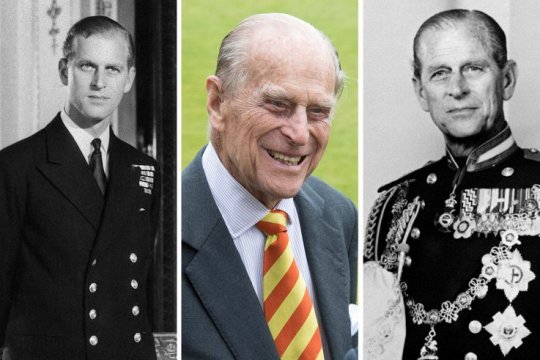
Contrary to what some might think I’m not really a fan girl when it comes to the royal family. I don’t religiously follow their every movement or utterance especially as I live in Paris and therefore I don’t really care about tabloid tittle tattle. I only get to hear of anything to do with the royal family when I speak to my parents or my great aunts and uncles for whom the subject is closer to their heart because of the services my family has rendered over past generations to the monarchy and the older (and dying) tight knit social circles they travel in.
Like Walter Bagehot, I’m more interested in the monarchy as an institution and its constitutional place within the historical, social, and political fabric of Britain and its continued delicate stabilising importance to that effect. It was Walter Bagehot, the great constitutional scholar and editor the Economist magazine, who said, “The mystic reverence, the religious allegiance, which are essential to a true monarchy, are imaginative sentiments that no legislature can manufacture in any people.” In his view, a politically-inactive monarchy served the best interests of the United Kingdom; by abstaining from direct rule, the monarch levitated above the political fray with dignity, and remained a respected personage to whom all subjects could look to as a guiding light.
Even as a staunch monarchist I freely confess that there has always been this odd nature of the relationship between hereditary monarchy and a society increasingly ambivalent about the institution. To paraphrase Bagehot again, there has been too much ‘daylight’ shone onto the ‘magic’ of the monarchy because we are obsessed with personalities as celebrities.
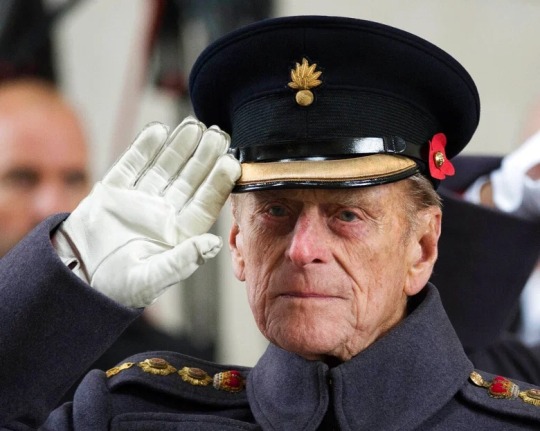
Having said that I did feel saddened by the passing of Prince Philip, the Duke of Edinburgh. After the Queen, he was my favourite royal. Anne, Princess Royal, would come next because she is very much like her father in temperament, humour, and character, so unlike her other brothers.
I have met the late Prince Philip when I was serving in the army in a few regimental meet-and-greet situations - which as you may know is pretty normal given that members of the royal family serve as honorary colonel-in-chiefs (patrons in effect) of all the British army regiments and corps.I also saw him at one or two social events such the annual charitable Royal Caledonian Ball (he’s an expert scottish reeler) and the Guards Polo Club where my older brothers played.
I’ll will freely confess that he was the one royal I could come close to identify with because his personal biography resonated with me a great deal.
Let’s be honest, the core Windsor family members, born to privilege, are conditioned and raised to be dull. Perhaps that’s a a tad harsh. I would prefer the term ‘anonymously self-effacing’, just another way of saying ‘for God’s sake don’t draw attention to yourself by saying or doing anything even mildly scandalous or political lest it invites public opprobrium and scrutiny’. The Queen magnificently succeeds in this but the others from Charles down just haven’t (with the exception of Princess Anne).
However, many people forget this obvious fact that it’s the incoming husbands and wives who marry into the Windsor family who are relied upon to bring colour and even liven things up a little. And long before Kate Middleton, Meghan Markle (very briefly), or Lady Diana Spencer, were the stars of ‘The Firm’- a phrase first coined by King George VI, Queen Elizabeth II's father who ruled from 1936 to 1952, who was thought to have wryly said, "British royals are 'not a family, we're a firm,” - it was Prince Philip who really livened things up and made the greater impact on the monarchy than any of them in the long term.
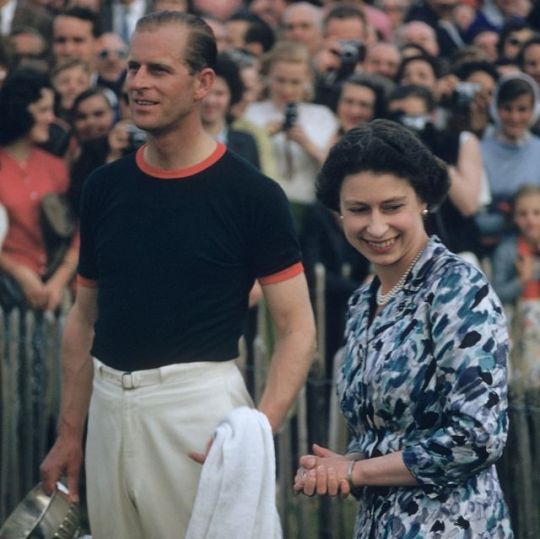
Prince Philip’s passing belied the truth of a far more complex individual: a destitute and penniless refugee Greek-Danish prince with a heart breaking backstory that could have been penned by any 19th Century novelist, and also eagle eyed reformer who tried to drag the royal family into the 20th century. At the core of the man - lost scion of a lost European royal dynasty, a courageous war veteran, and Queen’s consort - were values in which he attempted to transform and yet maintain much older inherited traditions and attitudes. Due to his great longevity, Philip’s life came to span a period of social change that is almost unprecedented, and almost no one in history viewed such a transformation from the front row.
Prince Philip would seem to represent in an acute form the best of the values of that era, which in many ways jar with today’s. He had fought with great courage in the war as a dashing young naval officer; he was regularly rude to foreigners, which was obviously a bonus to all Brits. He liked to ride and sail and shoot things. He was unsentimental almost to a comic degree, which felt reassuring at a time when a new-found emotional incontinence made many feel uncomfortable. Outrageous to some but endearing to others, he was the sort of man you’d want to go for a pint with, perhaps the ultimate compliment that an Englishman can pay to another Englishman. This has its own delicious irony as he wasn’t really an Englishman.
There are 4 takeways I would suggest in my appraisal of Prince Philip that stand out for me. So let me go through each one.
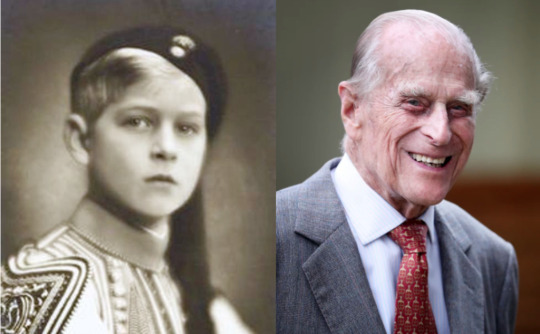
1. Prince Philip’s Internationalism
It may seem odd for me to say that Prince Philip wasn’t English but he wasn’t an Englishman in any real sense. He was a wretch of the world - stateless, homeless, and penniless. That the Prince of Nowhere became the British Monarchy’s figurehead was more than fitting for a great age of migration and transition in which the Royal Family survived and even flourished. That he was able to transform himself into the quintessential Englishman is testimony not just to his personal determination but also to the powerful cultural pull of Britishness.
He was born on a kitchen table in Corfu in June 1921. A year later in 1922, Philip, as the the great-great-grandson of Queen Victoria and nephew of Constantine I of Greece, was forced to flee with his family after the abdication of Constantine. He grew up outside Paris speaking French; ethnically he was mostly German although he considered himself Danish, his family originating from the Schleswig border region. He was in effect, despite his demeanour of Royal Navy officer briskness, a citizen of nowhere in an age of movement. From a very young age he was a stateless person, nationally homeless. Indeed, Philip was an outsider in a way that even Meghan Markle could never be; at his wedding in 1947, his three surviving sisters and two brothers-in-law were not permitted to attend because they were literally Britain’s enemies, having fought for the Germans. A third brother-in-law had even been in the SS, working directly for Himmler, but had been killed in the conflict.
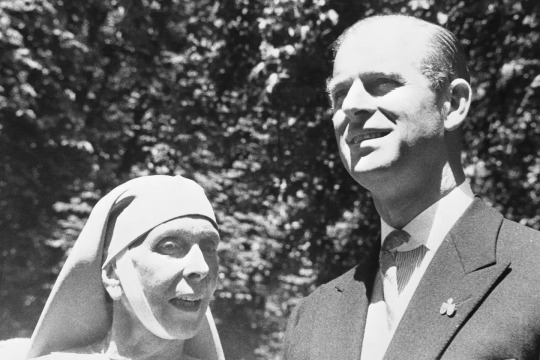
Even his religion was slightly exotic. He was Greek Orthodox until he converted to Anglicanism on marrying Elizabeth - what with his wife due to become supreme head of the Church and everything - but his ties with eastern Christianity remained. His great-aunts Princess Elisabeth of Hesse and by Rhine and Tsarina Alexandra are both martyrs of the Russian Orthodox Church, having been murdered by the Bolsheviks; Philip’s mother went on to become an Orthodox nun and a “Righteous Among the Nations” for saving a Jewish family during the Nazi occupation of Greece, spending much of her time in squalid poverty.
His parents were part of the largely German extended aristocracy who ruled almost all of Europe before it all came crashing down in 1918. When he died, aged 99, it marked a near-century in which all the great ideological struggles had been and gone; he had been born before the Soviet Union but outlived the Cold War, the War on Terror and - almost - Covid-19.
The world that Philip was born into was a far more violent and dangerous place than ours. In the year he was born, Irish rebels were still fighting Black and Tans; over the course of 12 months the Spanish and Japanese prime ministers were assassinated, there was a coup in Portugal and race riots in the United States. Germany was rocked by violence from the far-Left and far-Right, while in Italy a brutal new political movement, the Fascists, secured 30 seats in parliament, led by a trashy journalist called Benito Mussolini.
The worst violence, however, took place in Greece and Turkey. Following the defeat of the Ottoman Empire, what remained of Turkey was marked for permanent enfeeblement by the Allies. But much to everyone’s surprise the country’s force were roused by the brilliant officer Mustafa Kemal, who led the Turks to victory. Constantinople was lost to Christendom for good and thousands of years of Hellenic culture was put to the flames in Smyrna.
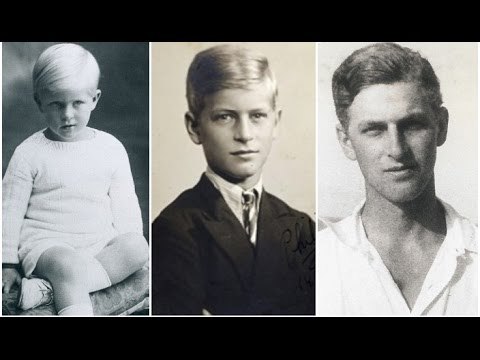
The Greek royal family, north German imports shipped in during the 19th century, bore much of the popular anger for this disaster. King Constantine fled to Italy, and his brother Andrew was arrested and only escaped execution through the intervention of his relative Britain’s George V. Andrew’s wife Alice, their four daughters and infant son Philip fled to France, completely impoverished but with the one possession that ensures that aristocrats are never truly poor: connections.
Philip had a traumatic childhood. He was forged by the turmoil of his first decade and then moulded by his schooling. His early years were spent wandering, as his place of birth ejected him, his family disintegrated and he moved from country to country, none of them ever his own. When he was just a year old, he and his family were scooped up by a British destroyer from his home on the Greek island of Corfu after his father had been condemned to death. They were deposited in Italy. One of Philip's first international journeys was spent crawling around on the floor of the train from an Italian port city, "the grubby child on the desolate train pulling out of the Brindisi night," as his older sister Sophia later described it.
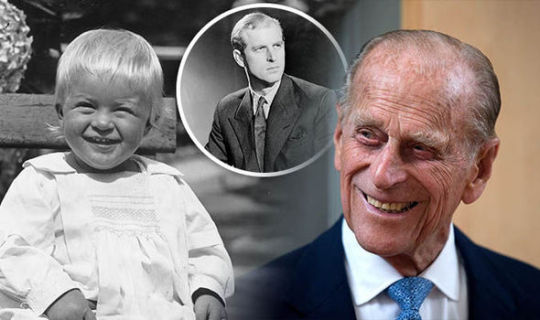
In Paris, he lived in a house borrowed from a relative; but it was not destined to become a home. In just one year, while he was at boarding school in Britain, the mental health of his mother, Princess Alice, deteriorated and she went into an asylum; his father, Prince Andrew, went off to Monte Carlo to live with his mistress. "I don't think anybody thinks I had a father," he once said. Andrew would die during the war. Philip went to Monte Carlo to pick up his father's possessions after the Germans had been driven from France; there was almost nothing left, just a couple of clothes brushes and some cuff-links.
Philip’s four sisters were all much older, and were soon all married to German aristocrats (the youngest would soon die in an aeroplane crash, along with her husband and children). His sisters became ever more embroiled in the German regime. In Scotland going to Gordonstoun boarding school, Philip went the opposite direction, becoming ever more British. Following the death of his sister Cecilie in a plane crash in 1937, the gulf widened. As the clouds of conflict gathered, the family simply disintegrated. With a flash of the flinty stoicism that many would later interpret, with no little justification, as self-reliance to the point of dispassion, the prince explained: “It’s simply what happened. The family broke up… I just had to get on with it. You do. One does.”
In the space of 10 years he had gone from a prince of Greece to a wandering, homeless, and virtually penniless boy with no-one to care for him. He got through it by making a joke of everything, and by being practical.
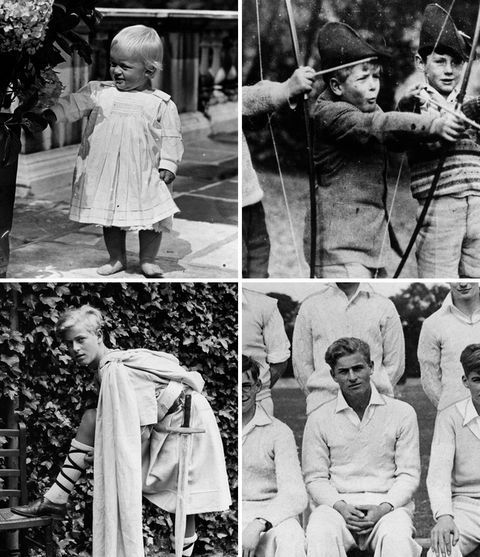
By the time he went to Gordonstoun, a private boarding school on the north coast of Scotland, Philip was tough, independent and able to fend for himself; he'd had to be. Gordonstoun would channel those traits into the school's distinct philosophy of community service, teamwork, responsibility and respect for the individual. And it sparked one of the great passions of Philip's life - his love of the sea. It was Gordonstoun that nurtured that love through the maturation of his character.
Philip adored the school as much as his son Charles would despise it. Not just because the stress it put on physical as well as mental excellence - he was a great sportsman. But because of its ethos, laid down by its founder Kurt Hahn, a Jewish exile from Nazi Germany.
Hahn first met Philip as a boy in Nazi Germany. Through a connection via one of his sister’s husbands, Philip, the poor, lonely boy was first sent off to a new school - in Nazi Germany. Which was as fun as can be imagined. Schloss Salem had been co-founded by stern educator called Kurt Hahn, a tough, discipline-obsessed conservative nationalist who saw civilisation in inexorable decline. But by this stage Hahn, persecuted for being Jewish in Nazi Germany, had fled to Britain, and Philip did not spend long at the school either, where pressure from the authorities was already making things difficult for the teachers. Philip laughed at the Nazis at first, because their salute was the same gesture the boys at his previous school had to make when they wanted to go to the toilet, but within a year he was back in England, a refugee once again.
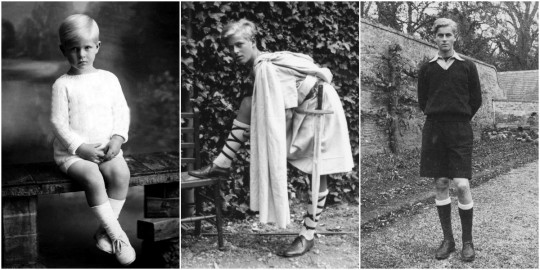
Philip happily attended Hahn’s new school, Gordonstoun, which the strict disciplinarian had set up in the Scottish Highlands. Inspired by Ancient Sparta, the boys (and then later girls) had to run around barefoot and endure cold showers, even in winter, the whole aim of which was to drive away the inevitable civilisational decay Hahn saw all around him. To 21st century ears it sounds like hell on earth, yet Philip enjoyed it, illustrating just what a totally alien world he came from.
That ethos became a significant, perhaps the significant, part of the way that Philip believed life should be lived. It shines through the speeches he gave later in his life. "The essence of freedom," he would say in Ghana in 1958, "is discipline and self-control." The comforts of the post-war era, he told the British Schools Exploring Society a year earlier, may be important "but it is much more important that the human spirit should not be stifled by easy living". And two years before that, he spoke to the boys of Ipswich School of the moral as well as material imperatives of life, with the "importance of the individual" as the "guiding principle of our society".
It was at Gordonstoun one of the great contradictions of Philip's fascinating life was born. The importance of the individual was what in Kurt Hahn's eyes differentiated Britain and liberal democracies from the kind of totalitarian dictatorship that he had fled. Philip put that centrality of the individual, and individual agency - the ability we have as humans to make our own moral and ethical decisions - at the heart of his philosophy.
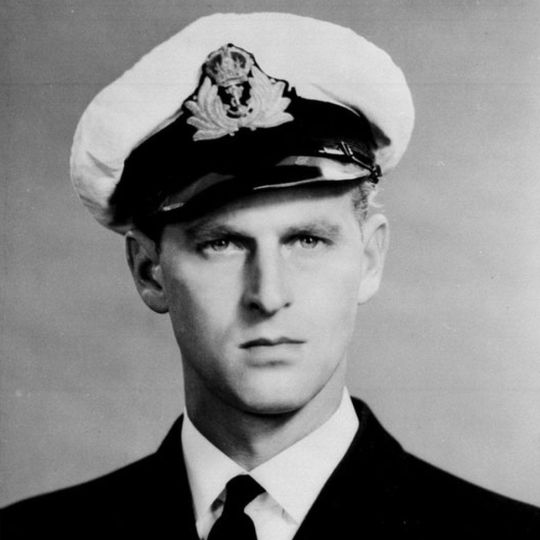
At Dartmouth Naval College in 1939, the two great passions of his life would collide. He had learned to sail at Gordonstoun; he would learn to lead at Dartmouth. And his driving desire to achieve, and to win, would shine through. Despite entering the college far later than most other cadets, he would graduate top of his class in 1940. In further training at Portsmouth, he gained the top grade in four out of five sections of the exam. He became one of the youngest first lieutenants in the Royal Navy.
The navy ran deep in his family. His maternal grandfather had been the First Sea Lord, the commander of the Royal Navy; his uncle, "Dickie" Mountbatten, had command of a destroyer while Philip was in training. In war, he showed not only bravery but guile. It was his natural milieu. "Prince Philip", wrote Gordonstoun headmaster Kurt Hahn admiringly, "will make his mark in any profession where he will have to prove himself in a trial of strength".
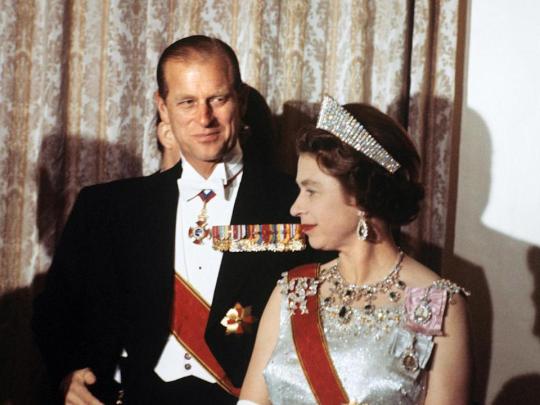
2. Prince Philip and the modernisation of the monarchy
In his own words, the process of defining what it meant to be a royal consort was one of “trial and error.” Speaking with BBC One’s Fiona Bruce in 2011, Philip explained, “There was no precedent. If I asked somebody, 'What do you expect me to do?' they all looked blank. They had no bloody idea, nobody had much idea.” So he forged for himself a role as a moderniser of the monarchy.
He could not have had much idea back in 1939. Back then in Dartmouth in 1939, as war became ever more certain, the navy was his destiny. He had fallen in love with the sea itself. "It is an extraordinary master or mistress," he would say later, "it has such extraordinary moods." But a rival to the sea would come.
When King George VI toured Dartmouth Naval College, accompanied by Philip's uncle, he brought with him his daughter, Princess Elizabeth. Philip was asked to look after her. He showed off to her, vaulting the nets of the tennis court in the grounds of the college. He was confident, outgoing, strikingly handsome, of royal blood if without a throne. She was beautiful, a little sheltered, a little serious, and very smitten by Philip.
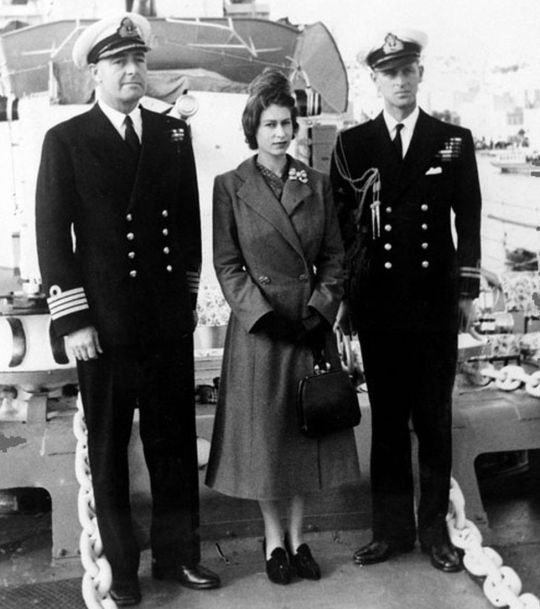
Did he know then that this was a collision of two great passions? That he could not have the sea and the beautiful young woman? For a time after their wedding in 1948, he did have both. As young newlyweds in Malta, he had what he so prized - command of a ship - and they had two idyllic years together. But the illness and then early death of King George VI brought it all to an end.
He knew what it meant, the moment he was told. Up in a lodge in Kenya, touring Africa, with Princess Elizabeth in place of the King, Philip was told first of the monarch's death in February 1952. He looked, said his equerry Mike Parker, "as if a ton of bricks had fallen on him". For some time he sat, slumped in a chair, a newspaper covering his head and chest. His princess had become the Queen. His world had changed irrevocably.
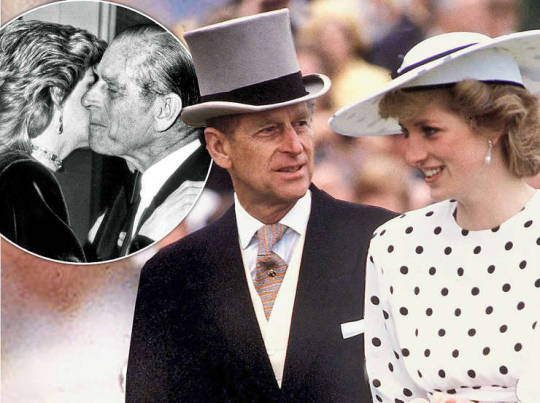
While the late Princess Diana was later to famously claim that there were “three people” in her marriage - herself, Prince Charles and Camilla - there were at least 55 million in Philip and Elizabeth’s. As Elizabeth dedicated her life to her people at Westminster Abbey at the Coronation on June 2, 1953, it sparked something of an existential crisis in Philip. Many people even after his death have never really understood this pivotal moment in Philip’s life. All his dreams of being a naval officer and a life at sea as well as being the primary provider and partner in his marriage were now sacrificed on the altar of duty and love.
With his career was now over, and he was now destined to become the spare part. Philip, very reasonably, asked that his future children and indeed his family be known by his name, Mountbatten. In effect he was asking to change the royal family’s name from the House of Windsor to the House of Mountbatten. But when Prime Minister Winston Churchill got wind of it as well as the more politically agile courtiers behind the Queen, a prolonged battle of wits ensued, and it was one Philip ultimately lost. It was only in 1957 that he accepted the title of “Prince.”
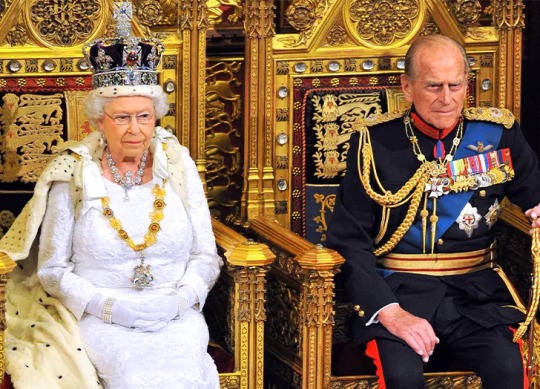
Even though he had almost lost everything dear to him and his role now undefined, he didn’t throw himself a pity party. He just got on with it. Philip tried to forge his own distinct role as second fiddle to the woman who had come to represent Great Britain. He designated himself the First Officer of the Good Ship Windsor. He set about dusting off some of the cobwebs off the throne and letting some daylight unto the workings of the monarchy by advocating reasonable amount of modernisation of the monarchy.
He had ideas about modernising the royal family that might be called “improving optics” today. But in his heart of hearts he didn’t want the monarchy to become a stuffy museum piece. He envisaged a less stuffy and more popular monarchy, relevant to the lives of ordinary people. Progress was always going to be incremental as he had sturdy opposition from the old guard who wanted to keep everything as it was, but nevertheless his stubborn energy resulted in significant changes.
When a commission chaired by Prince Philip proposed broadcasting the 1953 investiture ceremony that formally named Elizabeth II as queen on live television, Prime Minister Winston Churchill reacted with outright horror, declaring, “It would be unfitting that the whole ceremony should be presented as if it were a theatrical performance.” Though the queen had initially voiced similar concerns, she eventually came around to the idea, allowing the broadcast of all but one segment of the coronation. Ultimately, according to the BBC, more than 20 million people tuned in to the televised ceremony - a credit to the foresight of Philip.
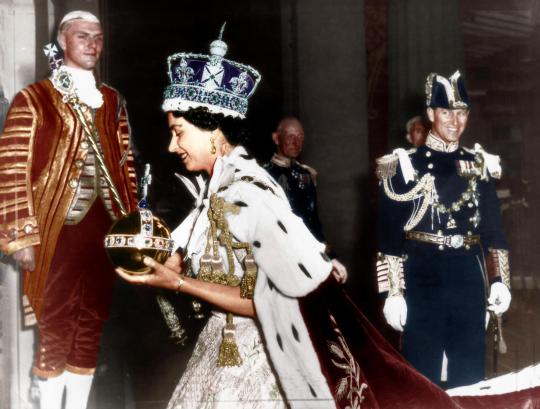
Elizabeth’s coronation marked a watershed moment for a monarchy that has, historically, been very hands off, old-fashioned and slightly invisible. Over the following years, the royals continued to embrace television as a way of connecting with the British people: In 1957, the queen delivered her annual Christmas address during a live broadcast. Again, this was Philip’s doing when he cajoled the Queen to televise her message live. He even helped her in how to use the teleprompter to get over her nerves and be herself on screen.
Four years later, in 1961, Philip became the first family member to sit for a television interview. It is hard for us to imagine now but back then it was huge. For many it was a significant step in modernising the monarchy.
Though not everything went to plan. Toward the end of the decade, the Windsors even invited cameras into their home. A 1969 BBC fly-on-the-wall documentary, instigated by Philip to show life behind the scenes, turned into an unmitigated disaster: “The Windsors” revealed the royals to be a fairly normal, if very rich, British upper-class family who liked barbecues, ice cream, watching television and bickering. The mystery of royalty took a hit below the waterline from their own torpedo, a self-inflicted wound from which they took a long time to recover. Shown once, the documentary was never aired again. But it had an irreversible effect, and not just by revealing the royals to be ordinary. By allowing the cameras in, Philip opened the lid to the prying eyes of the paparazzi who could legitimately argue that since the Royals themselves had sanctioned exposure, anything went. From then on, minor members of the House of Windsor were picked off by the press, like helpless tethered animals on a hunting safari.
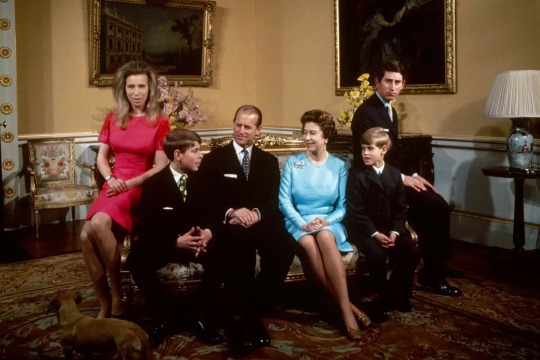
Prince Philip also took steps to reorganise and renovate the royal estates in Sandringham and Balmoral such as intercoms, modern dish washers, generally sought to make the royal household and the monarchy less stuffy, not to have so much formality everywhere.
Philip helped modernised the monarchy in other ways to acknowledge that the monarchy could be responsive to changes in society. It was Prince Philip - much to the chagrin of the haughty Princess Margaret and other stuffy old courtiers - who persuaded the Queen to host informal lunches and garden parties designed to engage a broader swath of the British public. Conversely, Prince Philip heartily encouraged the Queen (she was all for it apparently but was still finding her feet as a new monarch) to end the traditional practice of presenting debutantes from aristocratic backgrounds at court in 1952. For Philip and others it felt antiquated and out of touch with society. I know in speaking to my grandmother and others in her generation the decision was received with disbelief at how this foreign penniless upstart could come and stomp on the dreams of mothers left to clutch their pearls at the prospect there would be no shop window for their daughter to attract a suitable gentleman for marriage. One of my great aunts was over the moon happy that she never would have to go through what she saw as a very silly ceremony because she preferred her muddy wellies to high heels.
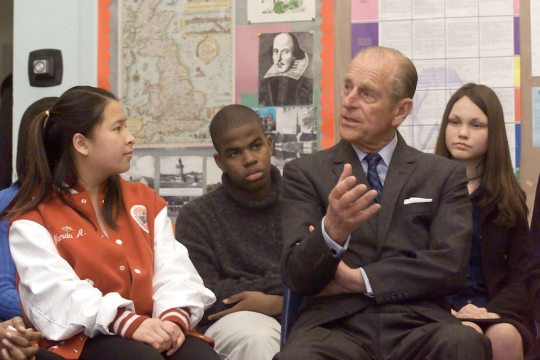
A former senior member of the royal household, who spent several years working as one of Prince Philip’s aides, and an old family friend, once told us around a family dinner table that the Duke of Edinburgh was undoubtedly given a sense of permanence by his marriage into the Royal Family that was missing from earlier years. But the royal aide would hastily add that Prince Philip, of course, would never see it that way.
Prince Philip’s attitude was to never brood on things or seek excuses. And he did indeed get on with the job in his own way - there should be no doubt that when it came to building and strengthening the Royal Family it was a partnership of equals with the Queen. Indeed contrary to Netflix’s hugely popular series ‘The Crown’ and its depiction of the royal marriage with Philip’s resentment at playing second fiddle, the prince recognised that his “first duty was to serve the Queen in the best way I could,” as he told ITV in 2011. Though this role was somewhat ill-suited to his dynamic, driven, and outspoken temperament, Philip performed it with utter devotion.
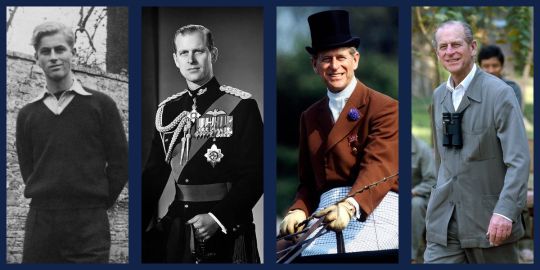
3. Prince Philip’s legacy
One could argue rightly that modernising the monarchy was his lasting legacy achievement. But he also tried to modernise a spent and exhausted Britain as it emerged from a ruinous war. When peace came, and with it eventual economic recovery, Philip would throw himself into the construction of a better Britain, urging the country to adopt scientific methods, embracing the ideas of industrial design, planning, education and training. A decade before Harold Wilson talked of the "white heat of the technological revolution", Philip was urging modernity on the nation in speeches and interviews. He was on top of his reading of the latest scientific breakthroughs and well read in break out innovations.
This interest in modernisation was only matched by his love for nature. As the country and the world became richer and consumed ever more, Philip warned of the impact on the environment, well before it was even vaguely fashionable. As president of the World Wildlife Fund (WWF) in the UK for more than 20 years from 1961, he was one of the first high-profile advocates of the cause of conservation and biological diversity at a time when it was considered the preserve of an eccentric few.
For a generation of school children in Britain and the Commonwealth though, his most lasting legacy and achievement will be the Duke of Edinburgh Awards (DofE). He set up the Duke of Edinburgh award, a scheme aimed at getting young people out into nature in search of adventure or be of service to their communities. It was a scheme that could match the legacy of Baden Powell’s scouts movement.
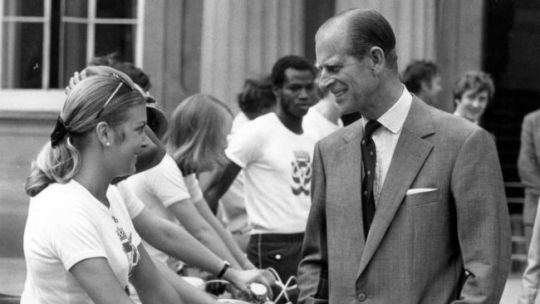
When Prince Philip first outlined his idea of a scheme to harness the values of his education at Gordonstoun by bringing character-building outdoor pursuits to the many rather than the fee-paying few, he received short shrift from the government of the day. The then minister of education, Sir David Eccles responded to the Duke’s proposal by saying: “I hear you’re trying to invent something like the Hitler Youth.” Undeterred he pushed on until it came to fruition.
I’m so glad that he did. I remember how proud I was for getting my DofE Awards while I was at boarding school. With the support of great mentors I managed to achieve my goals: collecting second-hand English books for a literacy programme for orphaned street children in Delhi, India with a close Indian school friend and her family; and completing a 350 mile hike following St. Olav’s Pilgrimmage Trail from Selånger, on the east coast of Sweden, and ending at Nidaros Cathedral in Trondheim, on the west coast of Norway.
It continues to be an enduring legacy. Since its launch in 1956, the Duke of Edinburgh awards have been bestowed upon some 2.5 million youngsters in Britain and some eight million worldwide. For a man who once referred to himself as a “Greek princeling of no consequence”, his pioneering tutelage of these two organisations (alongside some 778 other organisations of which he was either president or a patron) would be sufficient legacy for most.
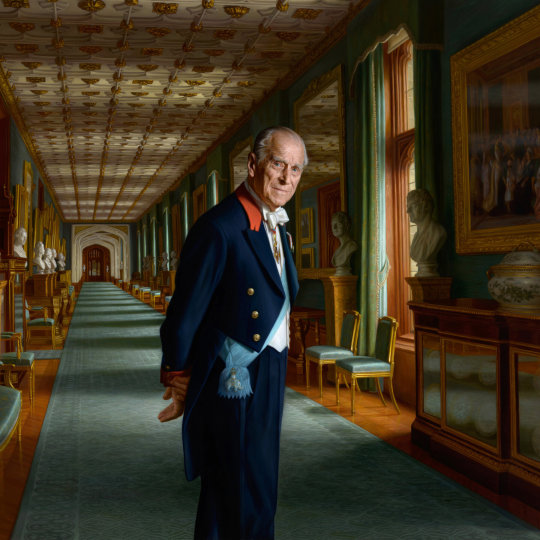
4. Prince Philip’s character
It may surprise some but what I liked most about Prince Philip was the very thing that helped him achieve so much and leave a lasting legacy: his character.
It is unhelpful to the caricature of Prince Philip as an unwavering but pugnacious consort whose chief talent was a dizzying facility in off-colour one-liners that he was widely read and probably the cleverest member of his family.
His private library at Windsor consists of 11,000 tomes, among them 200 volumes of poetry. He was a fan of Jung, TS Eliot, Shakespeare and the cookery writer Elizabeth David. As well as a lifelong fascination with science, technology and sport, he spoke fairly fluent French, painted and wrote a well received book on birds. It’s maddening to think how many underestimated his genuine intellect and how cultured he was behind the crusty exterior.
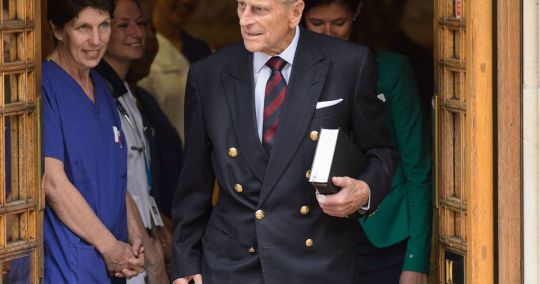
He didn’t have an entourage to fawn around him. He was the first to own a computer at Buckingham Palace. He answered his own phone and wrote and responded to his own correspondence. By force of character he fought the old guard courtiers at every turn to modernise the monarchy against their stubborn resistance.
Prince Philip was never given to self-analysis or reflection on the past. Various television interviewers tried without success to coerce him in to commenting on his legacy.But once when his guard was down he asked on the occasion of his 90th birthday what he was more proud of, he replied with characteristic bluntness: “I couldn’t care less. Who cares what I think about it, I mean it’s ridiculous.”
All of which neatly raises the profound aversion to fuss and the proclivity for tetchiness often expressed in withering put-downs that, for better or worse, will be the reflex memory for many of the Duke of Edinburgh. If character is a two edged sword so what of his gaffes?
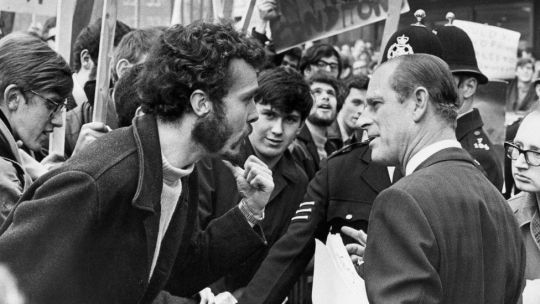
There is no doubt his cult status partly owed to his so-called legendary gaffes, of which there are enough to fill a book (indeed there is a book). But he was no racist. None of the Commonwealth people or foreign heads of state ever said this about him. Only leftist republicans with too much Twitter time on their hands screamed such a ridiculous accusation. They’re just overly sensitive snowflakes and being devoid of any humour they’re easily triggered.
There was the time that Philip accepted a gift from a local in Kenya, telling her she was a kind woman, and then adding: “You are a woman, aren’t you?” Or the occasion he remarked “You managed not to get eaten, then?” to a student trekking in Papua New Guinea. Then there was his World Wildlife Fund speech in 1986, when he said: “If it has got four legs and it is not a chair, if it has got two wings and it flies but is not an aeroplane, and if it swims and it is not a submarine, the Cantonese will eat it.” Well, he wasn’t wrong.
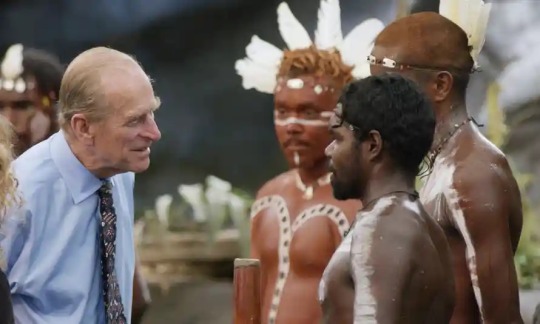
Philip quickly developed a reputation for what he once defined, to the General Dental Council, as “dentopedology – the science of opening your mouth and putting your foot in it”. Clearly he could laugh at himself as he often did as an ice breaker to put others at ease.
His remarking to the president of Nigeria, who was wearing national dress, “You look like you’re ready for bed”, or advising British students in China not to stay too long or they would end up with “slitty eyes”, is probably best written off as ill-judged humour. Telling a photographer to “just take the fucking picture” or declaring “this thing open, whatever it is”, were expressions of exasperation or weariness with which anyone might sympathise.
Above all, he was also capable of genuine if earthy wit, saying of his horse-loving daughter Princess Anne: “If it doesn’t fart or eat hay she isn’t interested.” Many people might have thought it but few dared say it. If Prince Philip’s famous gaffes provoked as much amusement as anger, it was precisely because they seem to give voice to the bewilderment and pent-up frustrations with which many people viewed the ever-changing modern world.
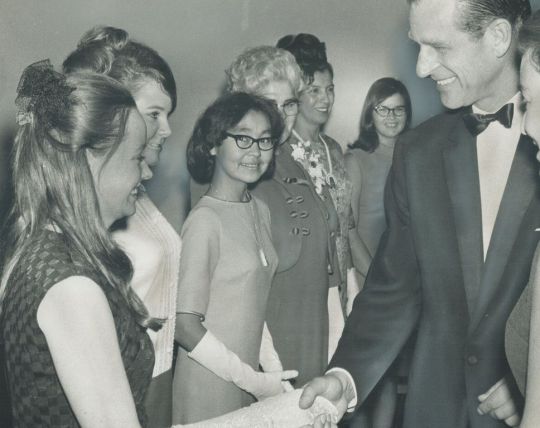
A former royal protection officer recounts how while on night duty guarding a visiting Queen and consort, he engaged in conversation with colleagues on a passing patrol. It was 2am and the officer had understood the royal couple to be staying elsewhere in the building until a window above his head was abruptly slammed open and an irate Prince Philip stuck his head out of the window to shout: “Would you fuck off!” Without another word, he then shut the window.
The Duke at least recognised from an early age that he was possessed of an abruptness that could all too easily cross the line from the refreshingly salty to crass effrontery.
One of his most perceptive biographers, Philip Eade, recounted how at the age of 21 the prince wrote a letter to a relation whose son had recently been killed in combat. He wrote: “I know you will never think much of me. I am rude and unmannerly and I say things out of turn which I realise afterwards must have hurt someone. Then I am filled with remorse and I try to put matters right.”
In the case of the royal protection officer, the Duke turned up in the room used by the police officers when off duty and said: “Terribly sorry about last night, wasn’t quite feeling myself.”
Aides have also ventured to explain away some of their employer’s more outlandish remarks - from asking Cayman islanders “You are descended from pirates aren’t you?” to enquiring of a female fashion writer if she was wearing mink knickers - as the price of his instinctive desire to prick the pomposity of his presence with a quip to put others at ease.
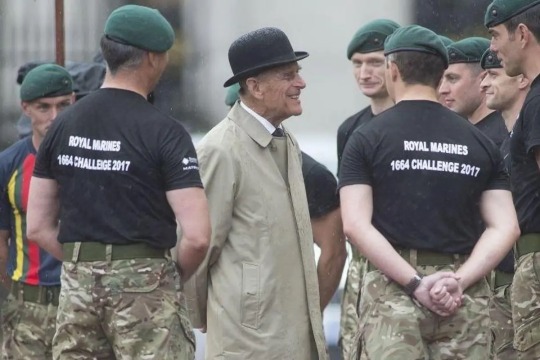
Indeed many people forget that his ‘gaffes’ were more typical of the clubbish humour of the British officer class – which of course would be less appreciated, sometimes even offensive, to other ears. It’s why he could relate so well to veterans who enjoyed his bonhomie company immensely.
But behind the irascibility, some have argued there also lay a darker nature, unpleasantly distilled in his flinty attitude to his eldest son. One anecdote tells of how, in the aftermath of the murder of the Duke’s uncle and surrogate father, Lord Mountbatten, Philip lectured his son, who was also extremely fond of his “honorary grandfather”, that he was not to succumb to self-pity. Charles left the room in tears and when his father was asked why he had spoken to his son with so little compassion, the Duke replied: “Because if there’s any crying to be done I want it to happen within this house, in front of his family, not in public. He must be toughened up, right now.”
But here I would say that Prince Philip’s intentions were almost always sincere and in no way cruel. He has always tried to protect his family - even from their own worst selves or from those outside the family ‘firm’ who may not have their best interest at heart.
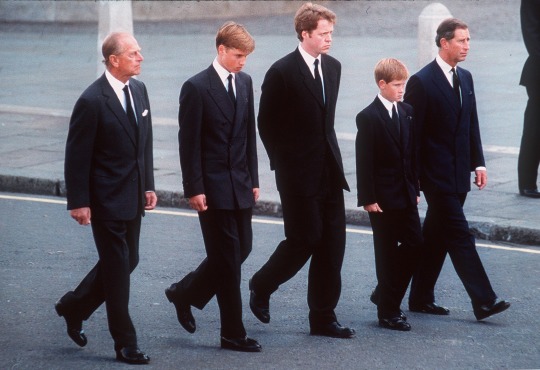
In 1937, a 16-year-old Prince Philip had walked behind his elder sister Cecile’s coffin after she was killed in a plane crash while heavily pregnant. The remains of newly-born infant found in the wreckage suggested the aircraft had perished as the pilot sought to make an emergency landing in fog as the mother entered childbirth. It was an excruciating taste of tragedy which would one day manifest itself in a very princely form of kindness that was deep down that defined Philip’s character.
When about 60 years later Prime Minister Tony Blair’s spin doctors in Downing Street tried to strong arm the Queen and the royal household over the the arrangements for the late Prince Diana’s funeral, it was Philip who stepped in front to protect his family. The Prime Minister and his media savvy spin doctors wanted the two young princes, William and Harry, to walk behind the coffin.
The infamous exchange was on the phone during a conference call between London and Balmoral, and the emotional Philip was reportedly backed by the Queen. The call was witnessed by Anji Hunter, who worked for Mr Blair. She said how surprised she was to hear Prince Philip’s emotion. ‘It’s about the boys,” he cried, “They’ve lost their mother”. Hunter thought to herself, “My God, there’s a bit of suffering going on up there”.’
Sky TV political commentator Adam Boulton (Anji Hunter’s husband) would write in his book Tony’s Ten Years: ‘The Queen relished the moment when Philip bellowed over the speakerphone from Balmoral, “Fuck off. We are talking about two boys who have just lost their mother”. Boulton goes on to say that Philip: ‘…was trying to remind everyone that human feelings were involved. No 10 were trying to help the Royals present things in the best way, but may have seemed insensitive.’
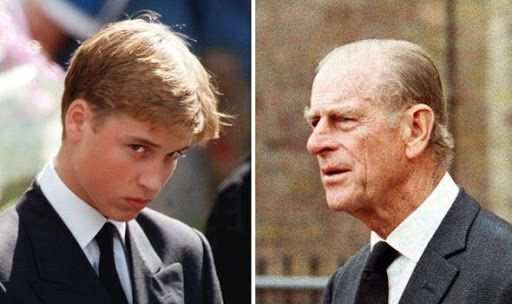
In the end the politicians almost didn’t get their way. Prince Philip stepped in to counsel his grandson, Prince William, after he had expressed a reluctance to follow his mother’s coffin after her death in Paris. Philip told the grieving child: “If you don’t walk, I think you’ll regret it later. If I walk, will you walk with me?”
It’s no wonder he was sought as a counsellor by other senior royals and especially close to his grandchildren, for whom he was a firm favourite. His relationship with Harry was said to have become strained, however, following the younger Prince’s decision to reject his royal inheritance for a life away from the public eye in America with his new American wife, Meghan Markle. For Prince Philip I am quite sure it went against all the elder Prince had lived his life by - self-sacrifice for the greater cause of royalty.
This is the key to Philip’s character and in understanding the man. The ingrained habits of a lifetime of duty and service in one form or another were never far away.
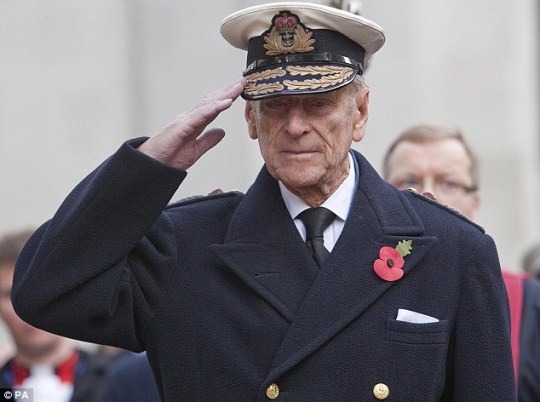
In conclusion then....
After more time passes I am sure historians will make a richer reassessment of Prince Philip’s life and legacy. Because Prince Philip was an extraordinary man who lived an extraordinary life; a life intimately connected with the sweeping changes of our turbulent 20th Century, a life of fascinating contrast and contradiction, of service and some degree of solitude. A complex, clever, eternally restless man that not even the suffocating protocols of royalty and tradition could bind him.
Although he fully accepted the limitations of public royal service, he did not see this as any reason for passive self-abnegation, but actively, if ironically, identified with his potentially undignified role. It is this bold and humorous embrace of fated restriction which many now find irksome: one is no longer supposed to mix public performance with private self-expression in quite this manner.
Yet such a mix is authentically Socratic: the proof that the doing of one’s duty can also be the way of self-fulfilment. The Duke’s sacrifice of career to romance and ceremonial office is all the more impressive for his not hiding some annoyance. The combination of his restless temperament and his deeply felt devotion to duty found fruitful expression; for instance, in the work of Saint George’s House Windsor - a centre and retreat that he created with Revd. Robin Woods - in exploring religious faith, philosophy, and contemporary issues.
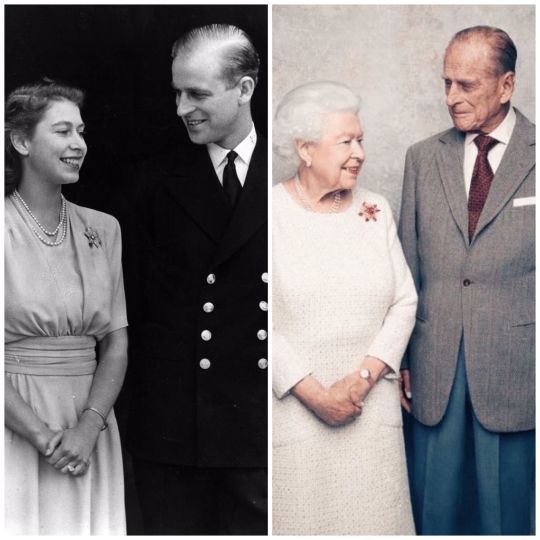
Above all he developed a way to be male that was both traditional and modern. He served one woman with chivalric devotion as his main task in life while fulfilling his public engagements in a bold and active spirit. He eventually embraced the opportunity to read and contemplate more. And yet, he remained loyal to the imperatives of his mentor Kurt Hahn in seeking to combine imagination with action and religious devotion with practical involvement.
Prince Philip took more pride in the roles he had accidentally inherited than in the personal gifts which he was never able fully to develop. He put companionship before self-realisation and acceptance of a sacred symbolic destiny before the mere influencing of events. In all these respects he implicitly rebuked our prevailing meritocracy which over-values officially accredited attainment, and our prevailing narcissism which valorises the assertion of discrete identities.
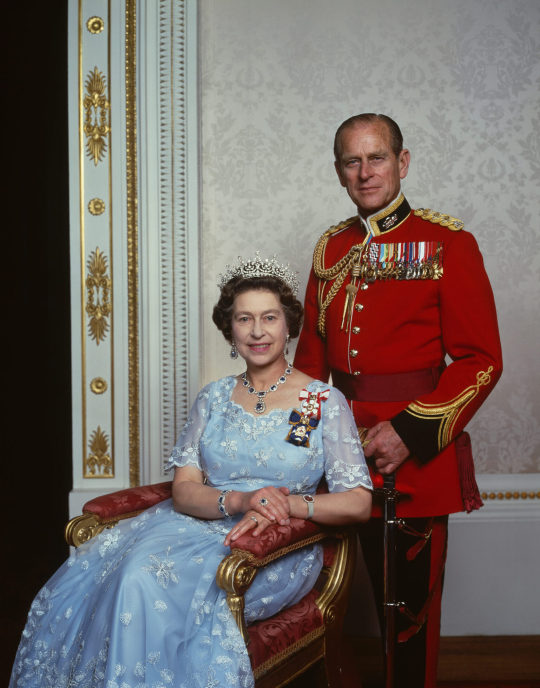
Prince Philip was Britain’s longest-serving consort. He was steadfast, duty driven, and a necessary adjunct to the continuity and stability of the Queen and the monarchy. Of all the institutions that have lost the faith of the British public in this period - the Church, Parliament, the media, the police - the Monarchy itself has surprisingly done better than most at surviving, curiously well-adapted to a period of societal change and moral anarchy. The House of Hanover and later Saxe-Coburg and Gotha (changed to Windsor), since their arrival in this country in 1714, have been noted above all for their ability to adapt. And just as they survived the Victorian age by transforming themselves into the bourgeoise, domestic ideal, so they have survived the new Elizabethan era (Harry-Meghan saga is just a passing blip like the Edward-Wallis Simpson saga of the 1930s).
There was once a time when the Royal’s German blood was a punchline for crude and xenophobic satirists. Now it is the royals who are deeply British while the country itself is increasingly cosmopolitan and globalised. British society has seen a greater demographic change than the preceding four or five thousand years combined, the second Elizabethan age has been characterised more than anything by a transformational movement of people. Prince Philip, the Greek-born, Danish-German persecuted and destitute wanderer who came to become one of the Greatest Britons of the past century, perhaps epitomised that era better than anyone else. And he got through it by making a joke of everything, and by being practical.
I hope I don’t exaggerate when I say that in our troubled times over identity, and our place and purpose in the world, we need to heed his selfless example more than ever.
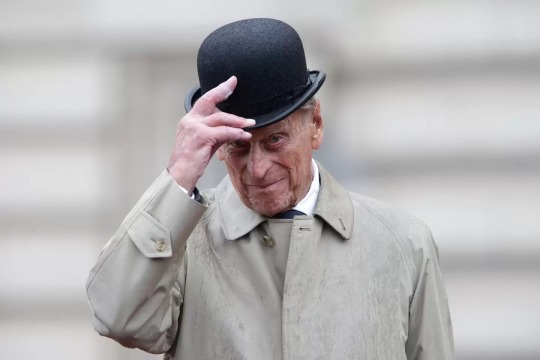
As Heraclitus wisely said, Ήθος ανθρώπω δαίμων (Character is destiny.)
RIP Prince Philip. You were my prince. God damn you, I miss you already.
Thanks for your question.
#question#ask#prince philip#duke of edinburgh#queen elizabeth II#the queen of spades#monarchy#britain#british#royalty#politics#history#culture#europe#crown#icon#great briton#society
284 notes
·
View notes
Note
I have some ideas/headcanons about the different kingdoms and clans that are in the Demon World, (I hope you like them).
Vibora's kingdom is to the west of the Demon World.
Viboras are the closest allies of the vampires.
They possess a lot of political and economic power.
Their castle is known to be extremely beautiful and elegant (the bastards like to show off their wealth and good taste).
Viboras are famous for the beautiful flowers that grow in their lands, however, many of them are poisonous, (Reiji loves to study the effects that the poisons of these flowers have).
Vibora's territory is very similar in architecture and landscapes to modern Germany.
Viboras are also known to have some of the most luxurious districts in the Demon World, specializing in jewelry, fashion and perfumery.
The boutiques in vibora territory are the most exclusive and elegant.
Viboras are excellent swordsmen, they are also expert users of dark magic.
The wolf clan is located in the north of the Makai.
Their territories are surrounded by huge snow-capped mountains and inhospitable forests that almost no one dares to enter. Nevertheless, its districts are quite peaceful and beautiful, (if I had to compare the wolf territory with any real country, it would be Romania).
King Eberto's castle is located deep in the forest.
Wolves are excellent hand-to-hand combatants and their monstrous strength surpasses that of any demon.
Wolves sell the best meat in the Demon World.
Wolves suffer from the most brutal winters.
Adler territory is located east of the Makai.
Adlers have several natural wonders, their spectacular cliffs and beautiful beaches (mostly unspoiled) are a major tourist attraction.
Adlers have a powerful military force, however, they prefer to maintain good relations with the other clans and avoid conflict.
They are a fairly wealthy society due to the fact that their mountains are rich in precious stones.
The castle of the adler king is located on top of a cliff by the sea, (something very similar to the Cair Paravel castle from the Chronicles of Narnia).
The bat clan's territories are south of the Makai.
They are the richest and most powerful clan in the Demon World.
Their territories are the largest and have all kinds of landscapes; from forests, rivers and mountains to beautiful beaches.
Karlheinz is the only king to own two castles: the Sakamaki family castle and Eden, both located on top of a mountain so that everyone in the Makai can contemplate them in all their splendor.
Vampires, like viboras, are expert users of black magic.
It is well known that vampires traffic in human beings, they sell them as slaves to the other clans.
The Founders' territory is in the farthest part of the Makai, beyond the north.
The Banmaden is the largest castle in the Demon World and is on top of a cliff by the sea, (like the adler castle).
The Founders are separated from the rest of the Demon World thanks to the high and extensive mountain ranges that surround their territory, (something like the Carpathian Mountains in Romania).
The Founders are obviously the most powerful demons that have ever existed, and if it weren't for the endzeit they would still be ruling.
I know my descriptions must have been somewhat repetitive and boring, but in all the official CGs where Rejet shows us what the demon realm in Diabolik Lovers is like, there are forests, mountains, beaches, cliffs and waterfalls, (also, all the architecture reminds me a lot of the gothic architecture of Germany and other countries in Europe). I think Rejet's intention was to create a luxurious world full of nature and beautiful landscapes.
By the way, sorry for my shitty english.
Before I dissect and dive into this - lemme just say - you, my sweet anon, are a blessing.
Whomever you may be, thanks for sharing all of your thoughts with me. You have gone so far above and beyond - Reject needs to hire you now. The vivid picture you have painted with these ideas are simply *chef's kiss* beautiful.

Due to the length of my response, I will place my thoughts under the cut.
Vibora
I think that a lot of your ideas are spot on with them! Since the Vibora are the current 'heads' of the demon realm, it makes sense for them to have a more luxurious kingdom. Considering their main ruler is Burai - who is seen as this picture of pristine, it stands to say that their kingdom would be immaculate.
The thought that this kingdom feeds into the idea of Gluttony is a big thing for me. I feel like your head cannons align with that! Having extravagant buildings and their natural environment's flourish.
I simply adore the idea of the architecture you picked out - Germany is a perfect idea. There is such a balance of industry and nature. I feel like the Vibora are a perfect fit for that! They are modern, yet still in the old ways.
When I look at the Mukai, I think of it as something connected yet also completely disconnected from the Human World. We can see that similarities, yet their way of living is something that has evolved past what we have now - yet looks like something we used to know. If that makes any sense! The Vibora clan, in particular I believe, has this vibe the most.
Their way of living is both evolved beyond what human's have - yet if you give them a smart phone, they have no idea what that is. Something so primitive - yet advanced all at the same time. Their proficiencies in magic have advanced their society beyond what other's have.
This is mostly due to the involvement of their King. Burai is VERY involved in the affairs of his people. Simply for the fact that they are a reflection of himself. There are no slums in the Vibora Kingdom - like we saw in young blood - as Burai does not allow those types to live in his immediate presence. While I don't think their is a wall around the Kingdom - he does toy with the idea often.
I think that only demons who can maintain a beautiful form are allowed to call this place home. While not all of them are Vibora, the greater population is. If a demon cannot present itself in a dignified manner, they are not allowed to live within the kingdom's boarders.
Wolf
The group of demon lords that I have thoughts about the least - and your head cannons got a good idea going! I think that the idea of them working more in a more natural environment checks out for them. When we think of a predator in nature, one of the top things people will say is a wolf.
Romania is so beautiful - and I think they embrace and build around nature, rather than try to be apart form it. That is an ideal location for the wolves! Building their communities as a part of their natural environment, and proving themselves by living in a more rough terrain.
While I do agree that there would be unity and peace under King Eberto, I think that fighting would be a traditional means of communication. Something like an unspoken language for all of them, that dictates a hierarchy. From all of the different major demon races, wolves are the only ones that actually have a pack. To them, there is nothing more important than their people. So, while there is no inner conflicts with one another, I think that authorities do get tested with the youth from time to time.
I think that, they more than any other, do not simply allow the child of their king to take over. While we do not know if Eberto is Gottfried's son, we do know that he is the current King. In the Wolf culture the strongest leads the pack. So, if Gottfried's children were not strong enough, they would not succeed their father.
Demons who are more in touch with their natural forms are the ones who live here. While that does not apply to those who would make trouble - more so those who simply wish to be in touch with their inner selves. So there are no rampaging demons - but do not be surprised if you see a more wolves, dogs, or cats before you see 'people'.
Adler
Oh my sweet birds~ I am sad that there is literally nothing on them - other than the fact that they exist. I have talked about them before: here.
The idea of their kingdom being full of wonder is what stands out to me! The views from high above the kingdom are like none other in the entire Mukai. They natural beauty of their territories' are awe inspiring. I love the idea of them having beaches! That's an idea I had never thought of, but can totally see.
As far as combat goes, I think that, yes they would have a notably capable military force. However, as you said, I think they would refrain from conflict as much as possible. They are truly neutral in fights, and while it was stated in Lost Eden that they were apart of the war, I feel they only get involved when they need to.
Money to them - isn't something they worry about. Sure, they kingdom stays thriving, but I believe it's mostly due to the individual work they put into it. My head cannon's for their society is a value of freedom. Their king does not force himself into their daily lives. He allows them to take care of themselves, and leaves it up to them to take care of their territory.
While sure there are rules in place, they are more so taught to the children and the way they are raised. They are brought up being taught that they are all individuals of a larger picture. That what they do matters and makes a difference for everyone - as such - be conscious of your decision. Live your desire's but do so in a way that wont harm others.
I agree that the castle of the king is up on a high location. It is rather large, but only for the fact that there is so much open space. The king does not keep himself locked away in the castle - rather - they move throughout the kingdom freely. Or they are simply away. I feel it can be a hard time to get ahold of him at times.
Most of the residence in this kingdom are some breed of bird based. While there are a few that make their homes on the ground, most of the citizens have wings to get form place to place. Since they have an ocean, there are also plenty of semi-aquatic races that call this home as well.
Bat
While they are definitely the richest and most powerful - they do not show it. Since Karlheniz prefers to work in private - his kingdom reflects that. He does not see to the matters of this people, and frankly because of that, things have gotten rather violent. While none of them dare to challenge him - I think that there would be conflict with the different territories.
This kingdom is where you would see an over arching lack of community - and that's mostly because of the lack of a leader. While Karlheniz does enforce his own will, he does not govern his people. They are simply not to mess with him, or declare fights with others without him. I like to think there is a council of all the different races in his kingdom who run things for their own unique race inside the kingdom.
They all meet with Karlheinz once in a while - or at least his image - and present matters to him. To which he will either deal with or ignore. These select few would have been picked by Karlheniz himself, and they would be the ones who live in the 'castle' which everyone can see and have access to.
I think that Eden castle is more Karl's personal estate - where he have all of his work done. This is where he would entertain other leaders from the major kingdoms -but not for his people. Billy the demon could not get into Eden so easily.
The idea that they traffic humans is perfect. I think that the members of this kingdom do the most harm to the human world. Whether it's through kidnapping or simply tormenting in their own world - the Bat Kingdom's people are ruthless to these lesser beings.
This, I think, is because aside from the Bat clan - the demons of the kingdom are rather weak. They might find strength in numbers, but they are not too powerful. Not that something as weak as say a Lapin (rabbit demon) - but they are not strong.
With such a diverse landscapes, there are many different kinds of demon who call this kingdom home. While perhaps not the 'slums' of the Mukai, it's definitely the most crime ridden. Races that think for themselves and do not form lasting attachments thrive in this kingdom. In fact, a Bat demon is one of the more rarer sights to the population.
Founders
While their kingdom was great, all such things fall to ruin. The once immaculate buildings are now dilapidated and have crumbled to the ground. Since this kingdom lay beyond the mountains in the north, only those of the purest of bloods had made their homes here. The citizens have long since moved on from the area, having to make a home in the other kingdoms.
I think that the territory now lays abandon - a finally curtsy left behind by Karlheinz. While he did kill and de-throne their king, he left everything once that happened. Endzeit took the lives of the people who were of the blood. And the kingdom itself has become lost to history.
Other
While there is no official cannon of this, I like to think there is an entire underwater kingdom in the Mukai. There are so many aquatic like demons that could exists, and I believe they have a home as well.
27 notes
·
View notes
Text
Hekatean Witchcraft Recommended Reading List
Books on Hekate:
-Hekate Soteira by Sarah Iles Johnston:
A must read for any Hekate devotee or follower. Discusses Her earlier roles as well as Her position as Cosmic World Soul in the Chaldean Oracles.
-Restless Dead by Sarah Iles Johnston:
Discusses the Ancient Greek views of the dead, which includes a lot of useful information about Hekate.
-Hekate: Liminal Rites by Sorita d’Este and David Rankine:
A great overview of Hekate’s history and many different aspects. An easy, but well informed read.
-Circle for Hekate vol. 1 by Sorita d’Este:
A much more in depth investigation of Hekate’s hostory, highly recommend. There’s a lot of little known info in this book.
-The Argonautica by Apollonius of Rhodes:
This is a classical epic and it follows the journey of Jason. It also, however, discusses Medea and Her worship of Hekate very frequently. Excellent historical viewpoints.
-Theogony by Hesiod:
Contains the Hymn to Hekate which is one of the first literary mentions of Hekate. Outlines Her early, ouranic roles.
-The Goddess Hekate edited by Stephen Ronan:
A difficult to locate text, but an absolutely great study on many different aspects of Hekate’s history.
Books on Ancient Greek Magic and Witchcraft:
-Arcana Mundi by Georg Luck:
Discusses real, historical practices, as well as the texts we have that relate to them. Also discusses many ancient beliefs about magic.
-The Greek Magical Papyri:
An important historical document which illustrates the way much of magic was performed in Ancient Greece and Rome.
-Magic, Witchcraft, and Ghosts in the Greek and Roman Worlds by Daniel Ogden
A great sourcebook which contains excerpts from historical documents on the subject of magic and witchcraft, as well as discussion and analysis of these passages. An essential.
-Magika Hiera edited by Chris A. Faraone and Dirk Obbink:
Discusses a range of different magical practices in Ancient Greece, as well as their relation to theology. Discusses binding tablets, amulets, herbal magic, and more.
-Curse Tablets and Binding Spells from the Ancient World by John G. Gager:
This book has a more narrow focus but is really great and a lot of the information has been useful in reconstructing these practices.
-Greek and Roman Necromancy by Daniel Ogden:
A favorite author of mine and a great study of ancient necromancy, which was a huge component of magic in the ancient world.
-Night’s Black Agents by Daniel Ogden:
Has a great section which discusses Kirke and Medea as the first witches in western mythology and literature.
-Witchcraft and Magic in Europe Volume 2: Ancient Greece and Rome edited by Bengt Ankarloo and Stuart Clark:
Includes essays from many experts on the topics of witchcraft and magic in the ancient world and was my introduction to the subject. Highly recommend this book.
809 notes
·
View notes
Text
@amilbaba famous and authentic amil in #asia #europe #kaly ilam wali amil islamabad 03432933659 | kala jadu- expert in karachi #ladyasttrologer | expert in Dubai #amilbaba ..#black magic expert in islamabd
#kalailam in lahore
#jadu- expert in karachi
#dhaiya amal expert in faisalabad
#sifli ilam expert in jamshoro
#bangali-amal experts inpakistan
#blackmagic expert in (#dubai, #canada, #france, #uk, #usa, #germany, #turkey, #saudiaarabia,#ksa #switzerland,#southkorea,#japan,#china,#greece,#westindies,#norway and all over the world) 03432933649 contact us forany problem
#amilbaba
#tantrik amil
#bangali amilbaba
#jadutoona kat o palat
0 notes
Text
Black Cats

Cats have been worshipped and seen as heavily spiritual beings for years in many cultures such as the Ancient Egyptians and throughout Europe in the middle ages since the cats would kill the rodents spreading the black plague.
According to solidgoldpet.com, “Others believed that cats were actually humans that committed bad deeds and were forced to return to the world and while it’s hard to imagine that anyone ever considered these beautiful animals to be evil, these beliefs ultimately lead to the superstitions people have of black cats, even to this day.”
Felines were evolved to be efficient hunting animals that first came to be about 65-33 million years ago. Each kind of cat has different energy, whether this means a difference between a lion and a Jaguar, or a calico and a siamese cat.
Cats were associated with evil forces, and ergo witches, back when the witch hunts were occurring because of their nocturnal and independent natures. Black cats in particular are associated with death like crows and ravens because of their color. Both witches and black cats were persecuted and killed together because people thought that black cats assisted witches in their evil deeds/were their familiars, and also that witches could transform into black cats to lurk in the shadows and cast spells on people.
“According to Man, Myth & Magic, an Italian legend tells of a cat that gave birth to her kittens under the manger in which Jesus was born. “but the cat was not destined to be venerated in Christian Europe, for the Church with its violent repudiation of paganism succeeded in reducing the status of this once sacred animal to that of a devil …During the persecution of the Cathars the belief was fostered that these heretics worshipped the Devil in feline form, and the stage was set for the cat’s unwitting participation in the witchcraft tragedy.”– Martha Gray Grimalkyn: The Witch’s Cat: Power Animals in Traditional Magic
There are more black cats then cats of any other color, 33% of all cats are black, whilst 28% are grey. There is a popular myth that black cats are more likely to be abandoned, but studies show that, “although euthanasia numbers for black animals are at or near the top (both black and white dogs were near 19 percent; black cats were at 30 percent, with gray cats and white cats coming in just under that, at 28 percent and 26 percent, respectively), their total adoption numbers were also the highest of any color.” (Is It a Myth That Black Shelter Pets Are Less Likely to Be Adopted? By Kristen Seymour). This could be because of the fact that there are simply more of these animals than any other, so they are most likely to be put down. This however adds to the belief that black-coated animals are neglected because of color.
In American folk magick, black cats and witches have a good relationship still, and black cats’ shed brings protection and luck in spells! They are especially useful for luck in gambling. British and Irish sailors brought black cats on their ships believing it to be good luck as well.
Here is a link about cats on ships :) https://www.litter-robot.com/blog/2020/09/19/cats-on-ships-history/
Here are my sources:
http://www.vetstreet.com/our-pet-experts/is-it-a-myth-that-black-shelter-pets-are-less-likely-to-be-adopted
https://www.ethosvet.com/blog-post/where-did-black-cats-get-their-bad-rep/#:~:text=Other%20theories%20suggest%20that%20during,streets%20of%20these%20bad%20omens.
https://www.tasteofthewildpetfood.com/working-dogs/black-cat-superstition/
https://www.patheos.com/blogs/matauryn/2017/10/12/black-cats-witchcraft-goddesses-bad-luck/
https://solidgoldpet.com/heres-actual-reason-witches-black-cats/
https://www.petfinder.com/cats/living-with-your-cat/cats-and-witches-history-black-cat/
And here is a book I found that has some very good info! https://www.amazon.com/Pagan-Portals-Grimalkyn-Animals-Traditional/dp/1780999569/ref=as_li_ss_tl?s=books&ie=UTF8&qid=1507842744&sr=1-1-fkmr0&keywords=Grimalkyn:+The+Witch%E2%80%99s+Cat:+Power+Animals+in+Traditional+Magic+Read+more+at+http://admin.patheos.com/blogs/matauryn/?p=1302#UPS1WJ5iM7bxlwVp.99&linkCode=sl1&tag=theastr-20&linkId=5f701fdc45cb909d5fb853e3699b12f5
Thank you @the-illuminated-witch for help on the modern interpretation of black cats!! :)
#witches of tumblr#witchcraft#witch culture#baby witch#witchblr#witchyvibes#cottage witch#beginner witch#witch#green witch#witchlife#witchesofig#a discovery of witches#witches of color#black witches#witches#witchy tumblr#witchy things#witchy tips#witchy thoughts#witchy#black cats#cats#cat history
290 notes
·
View notes